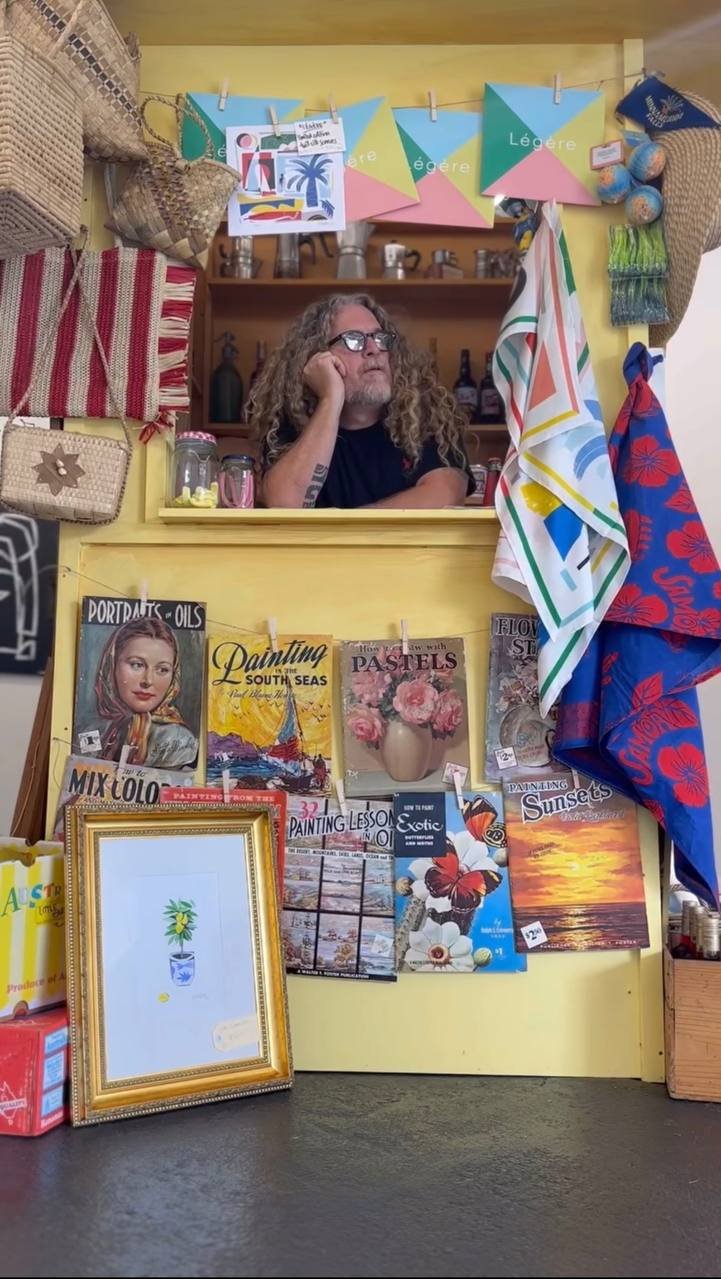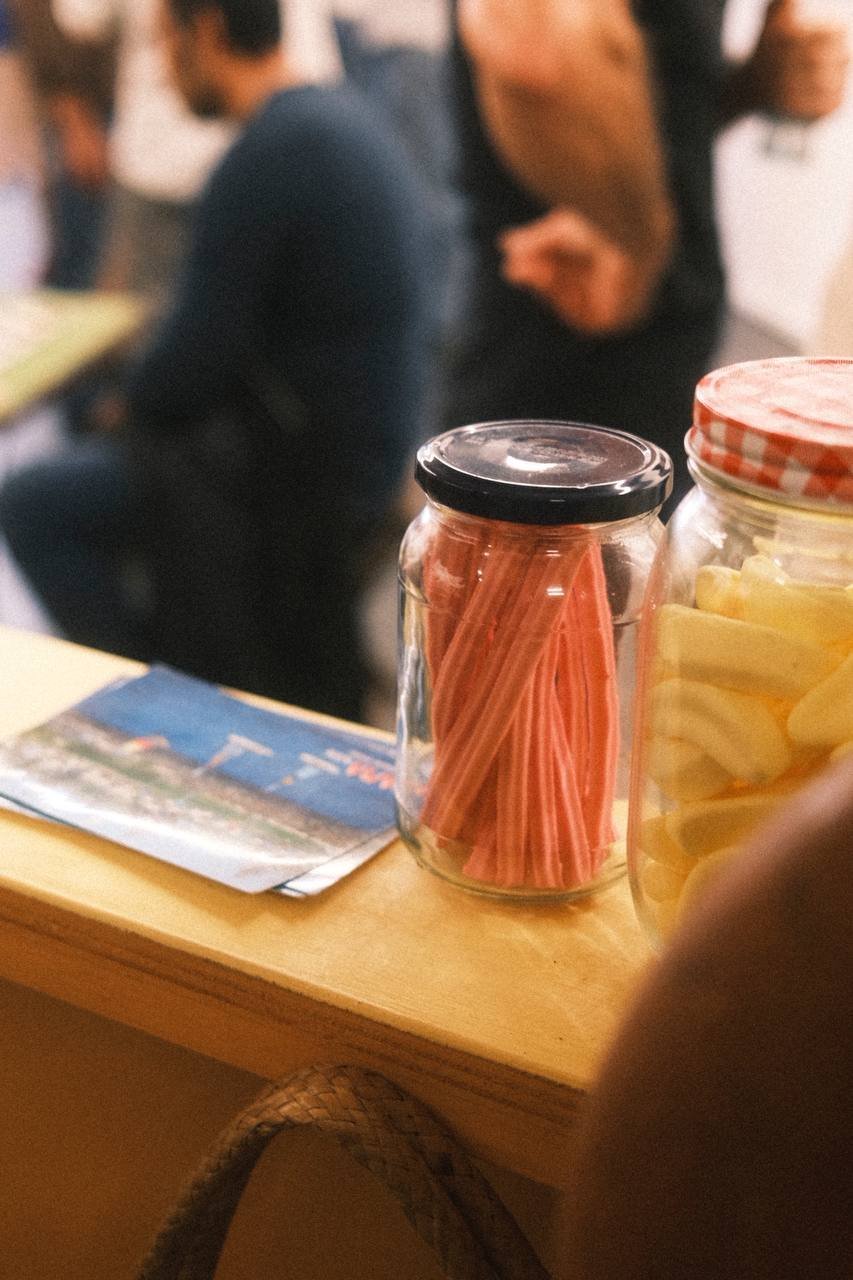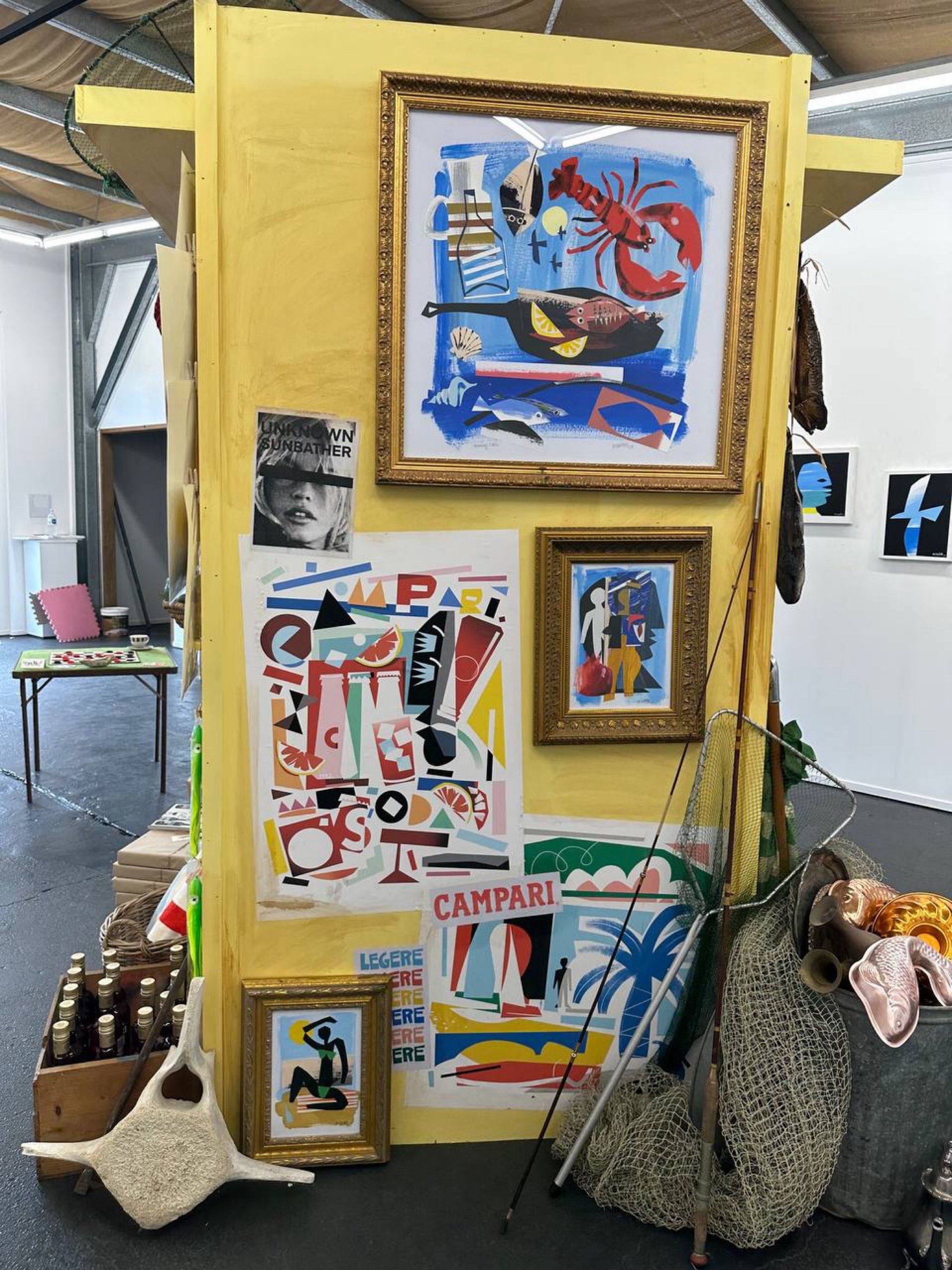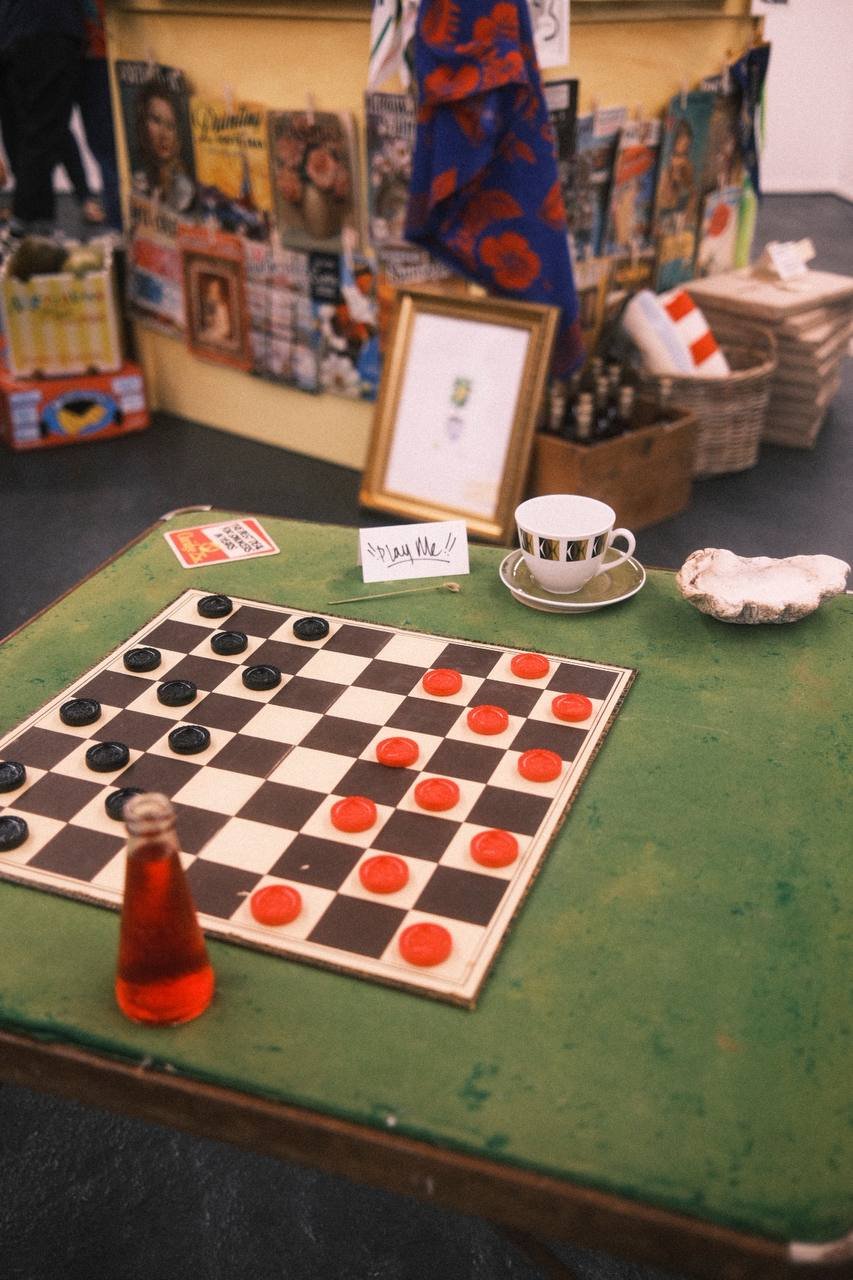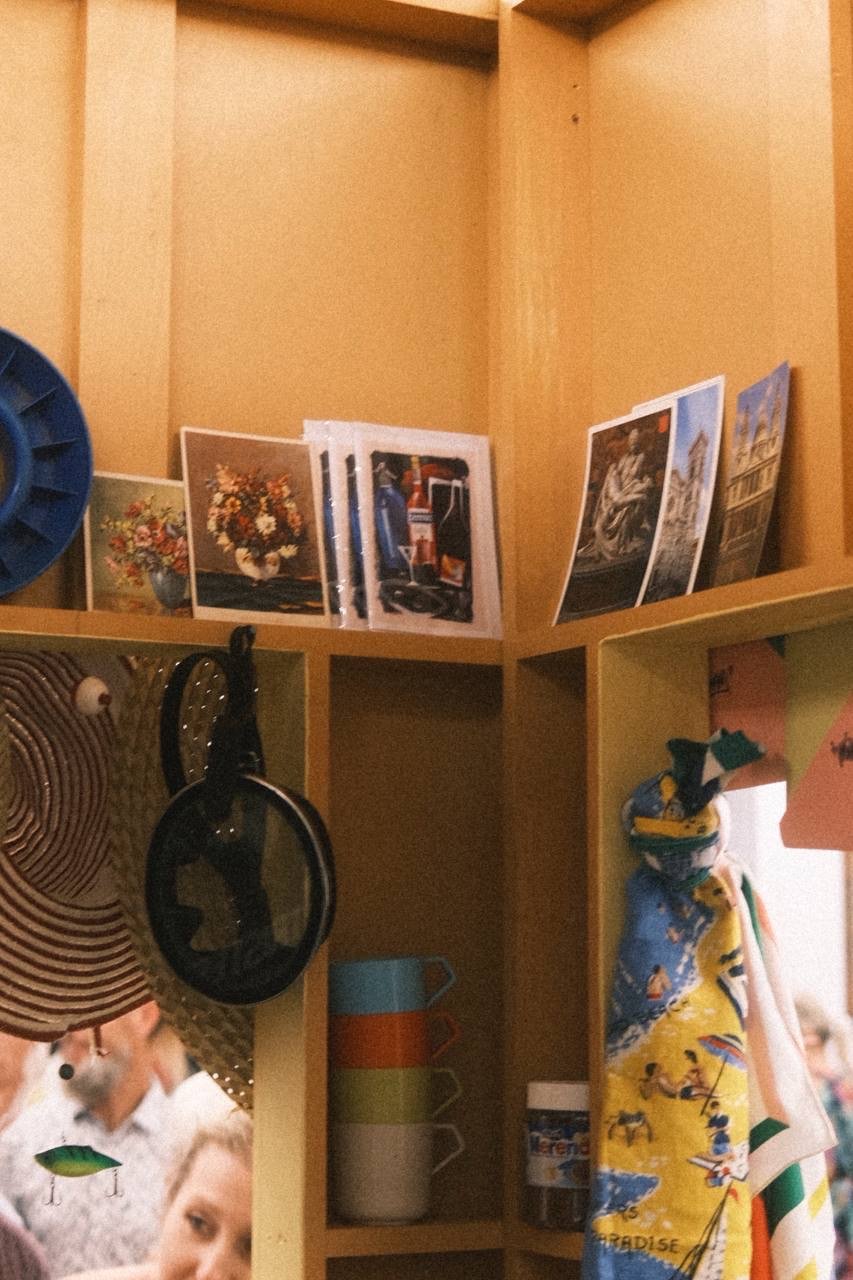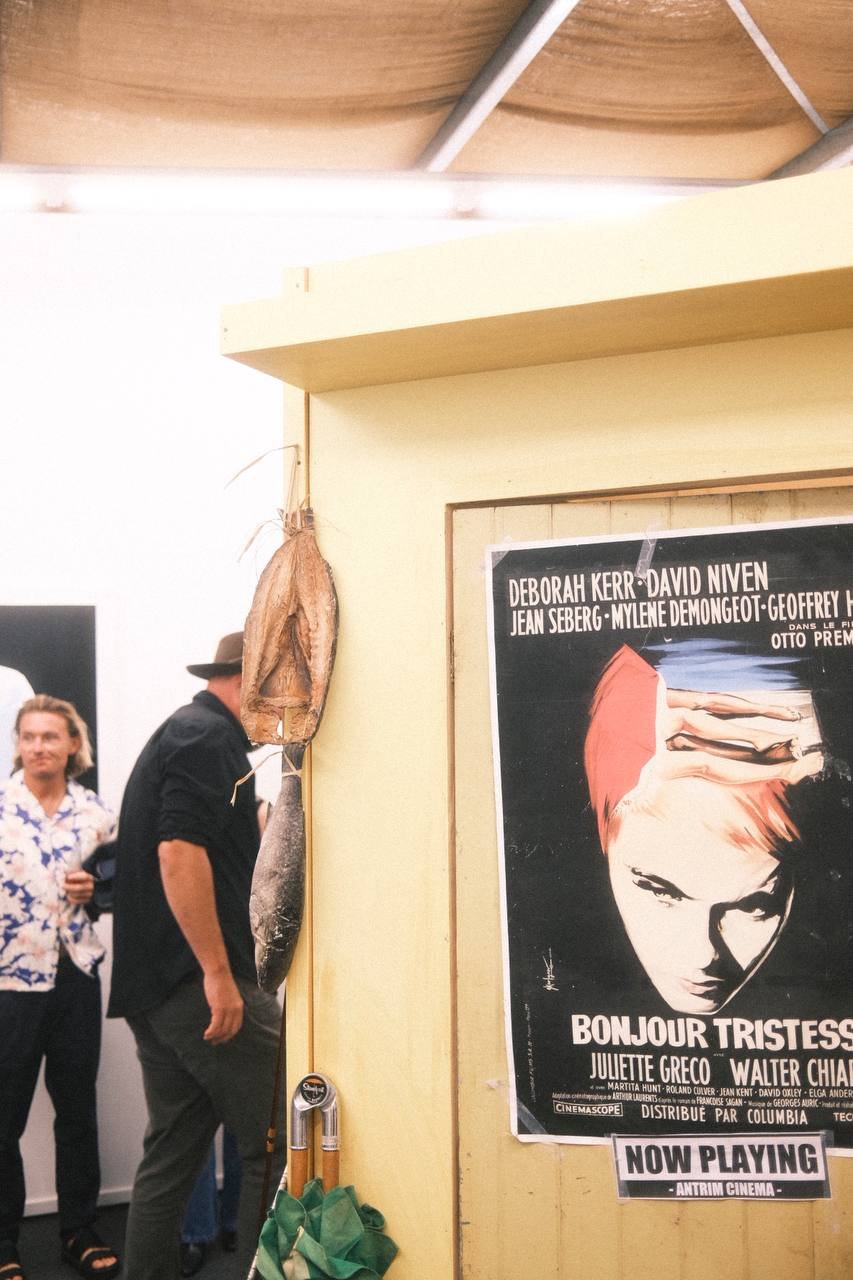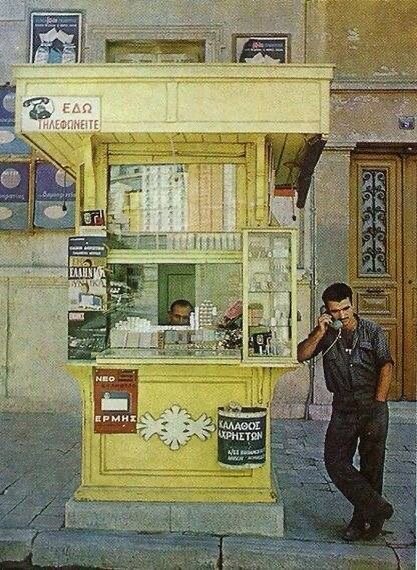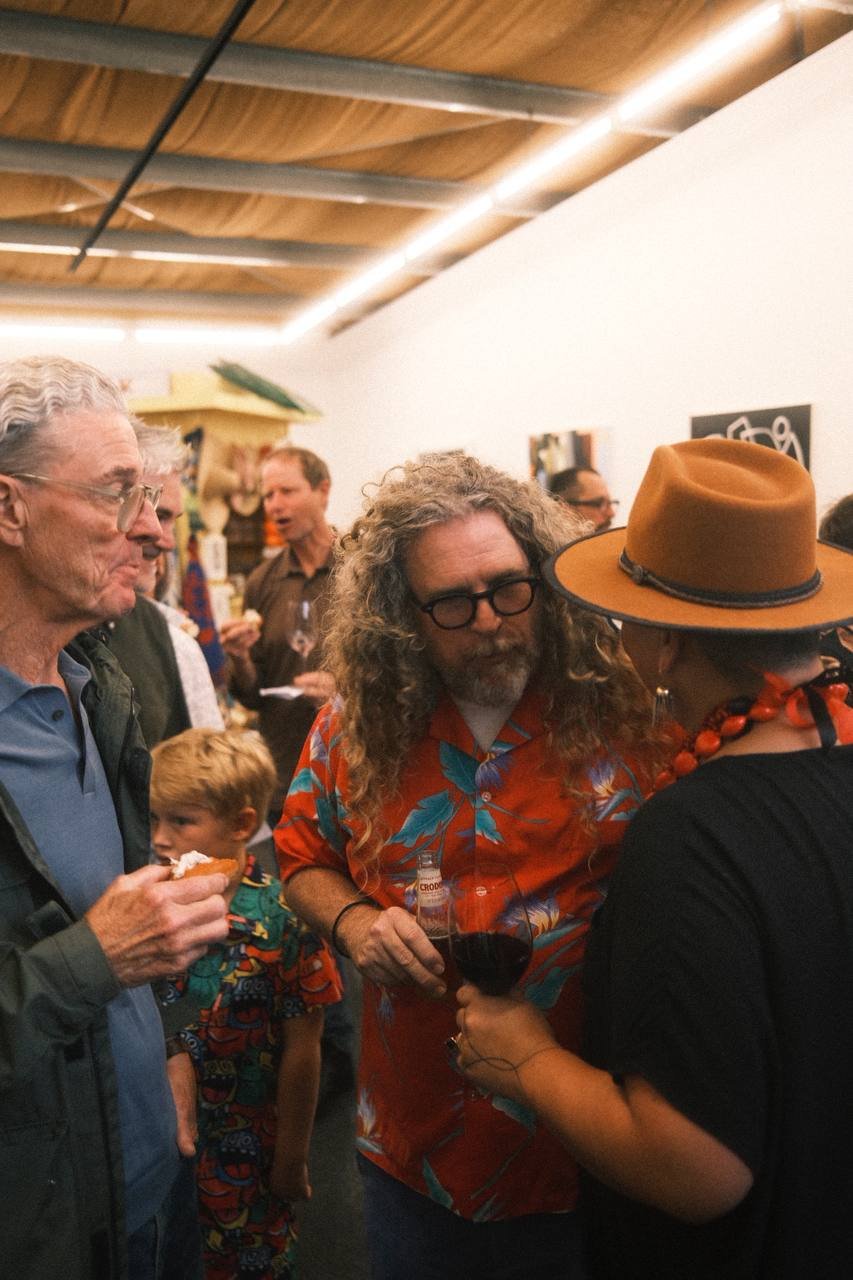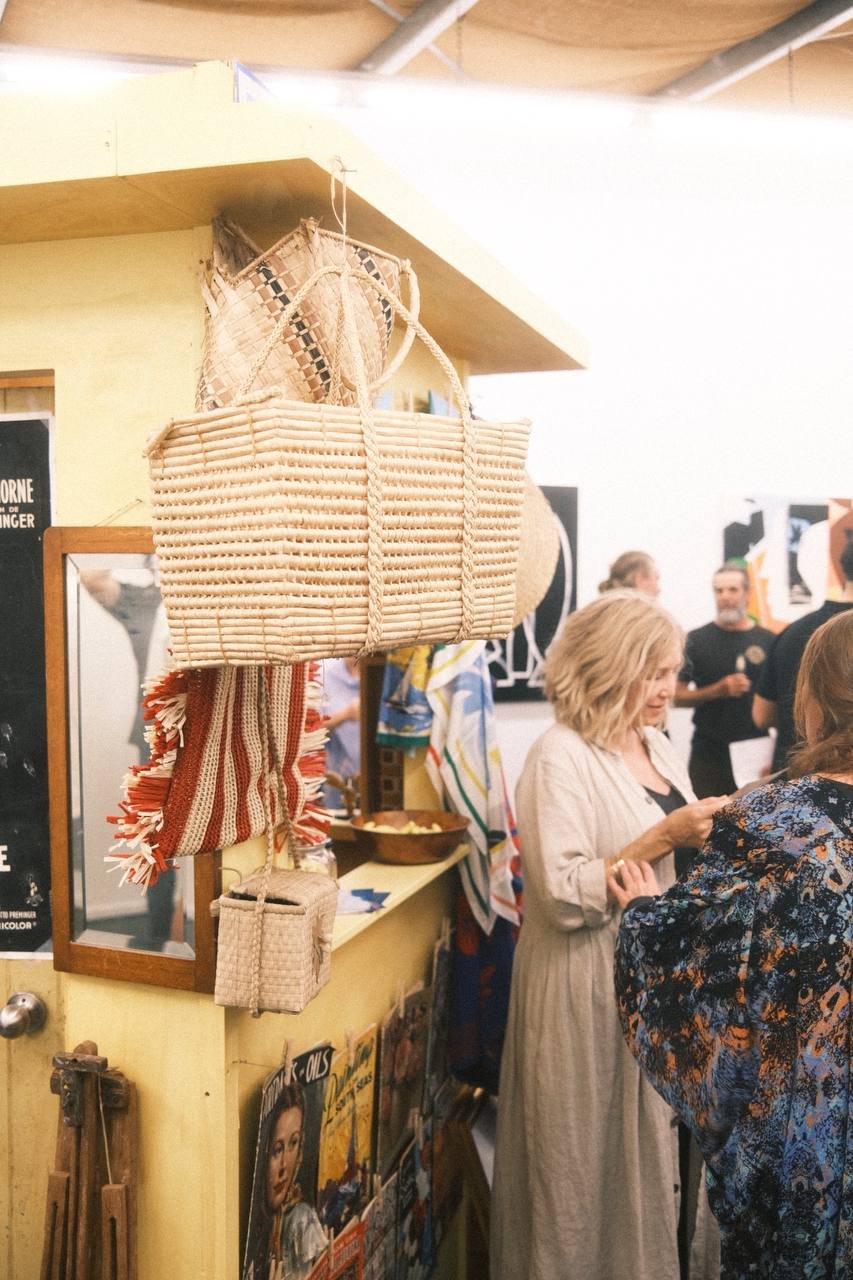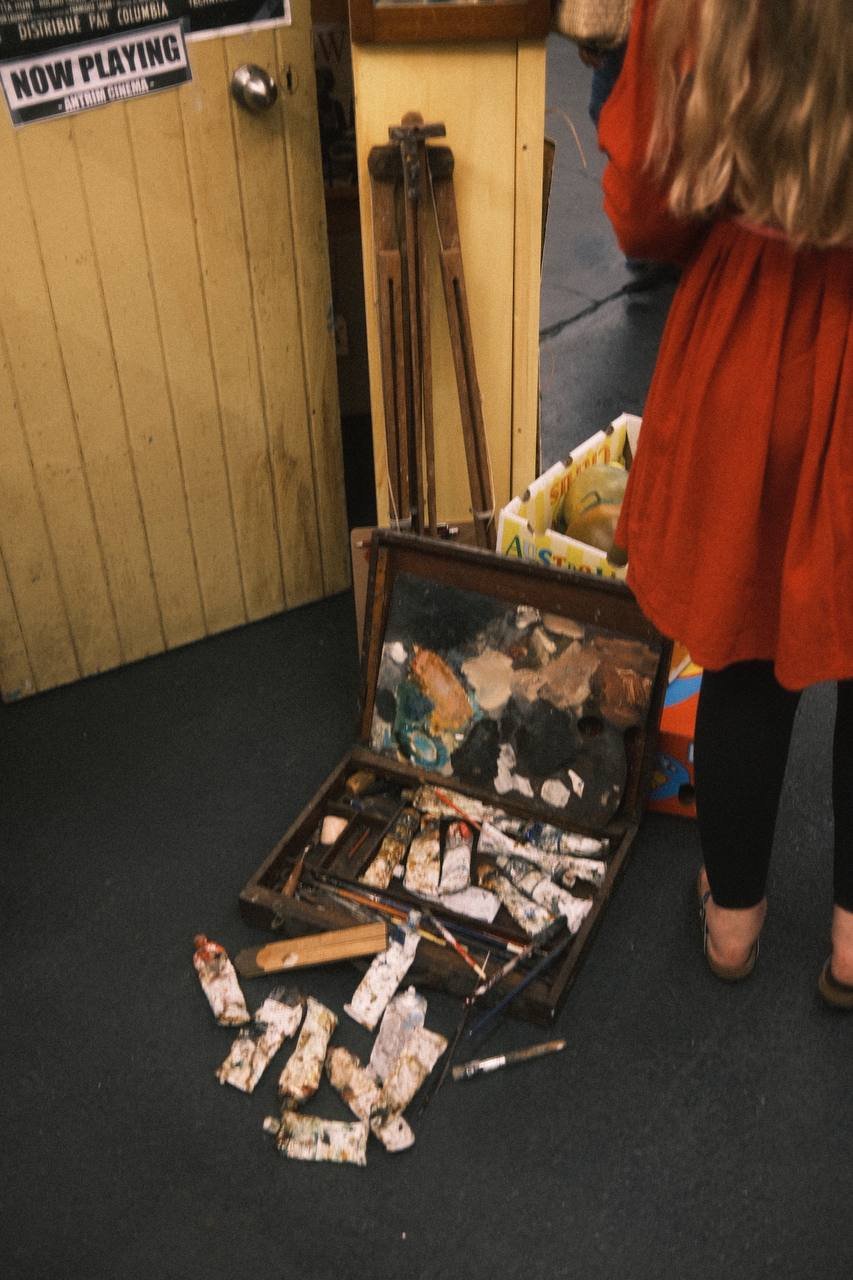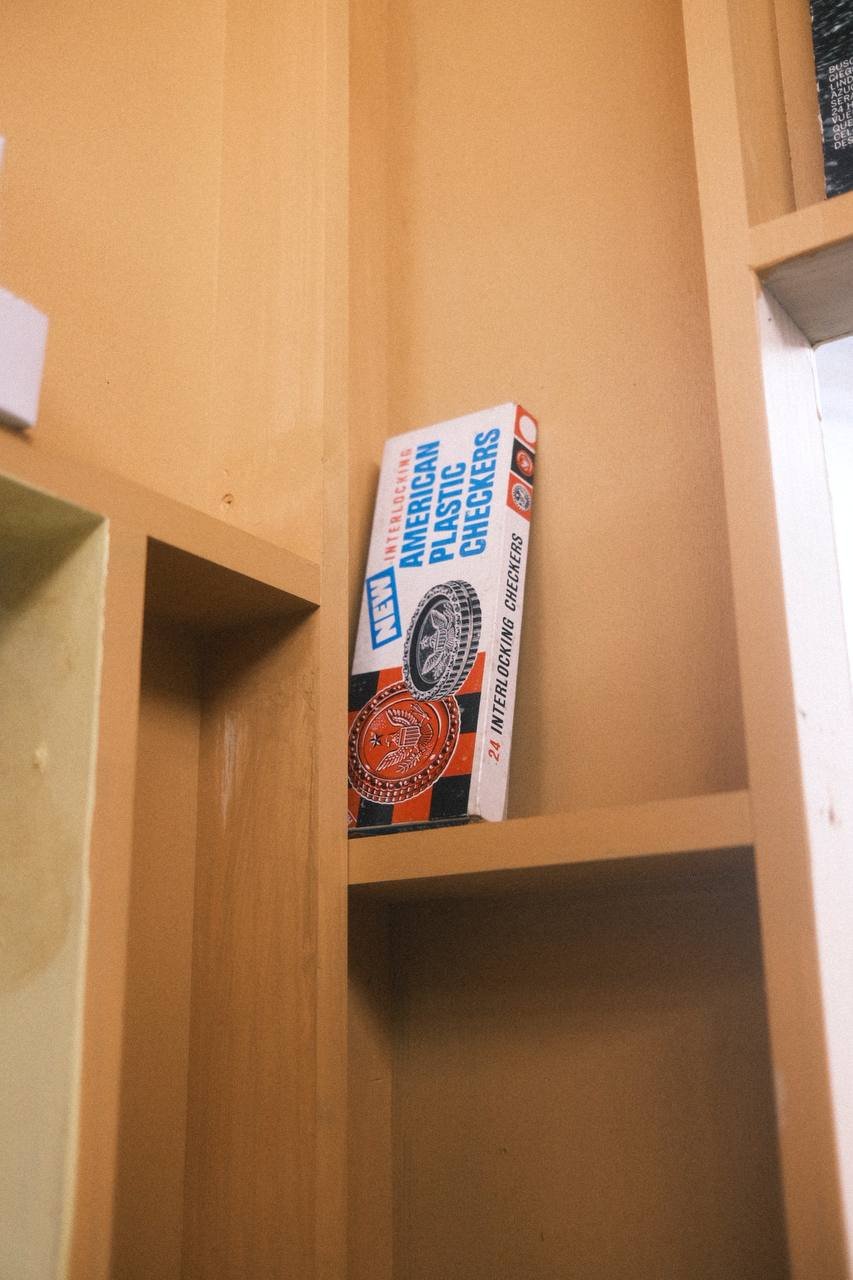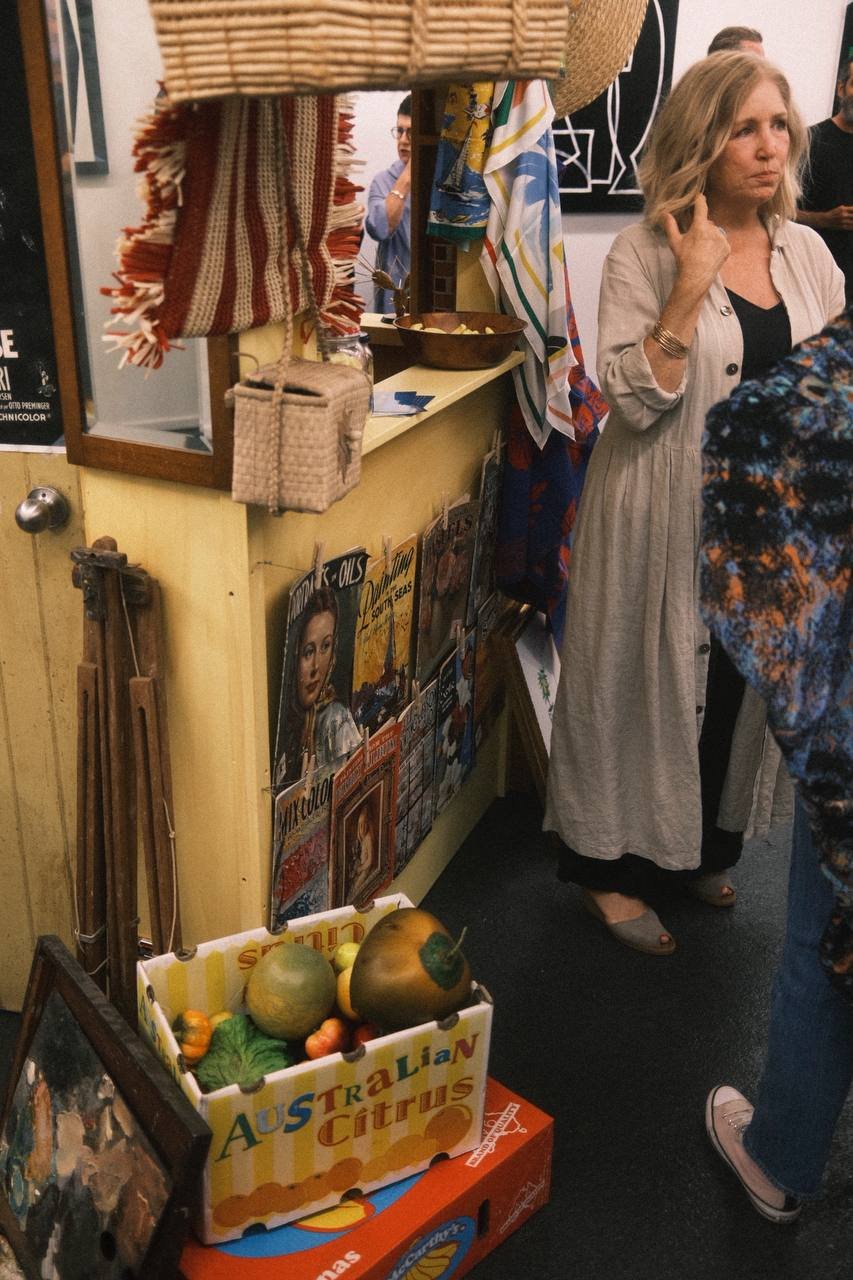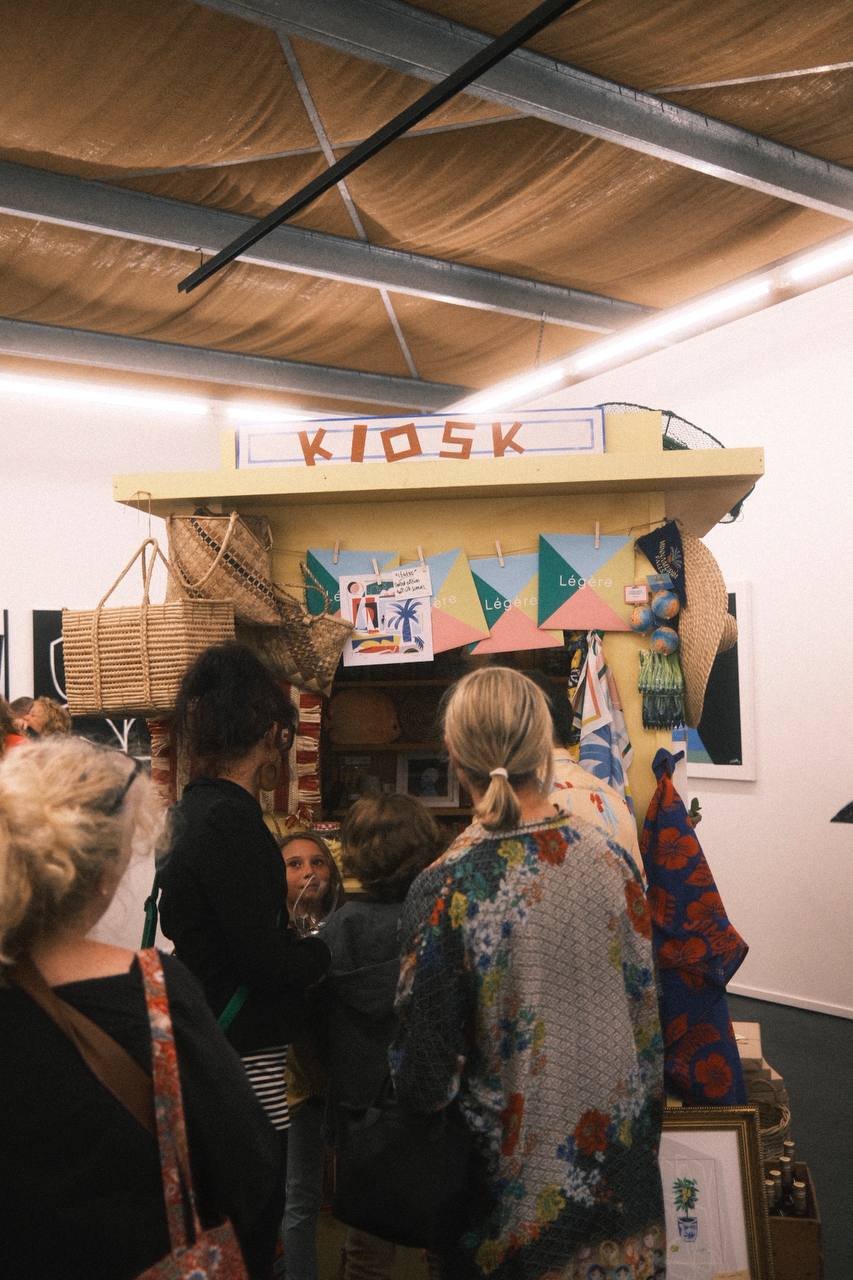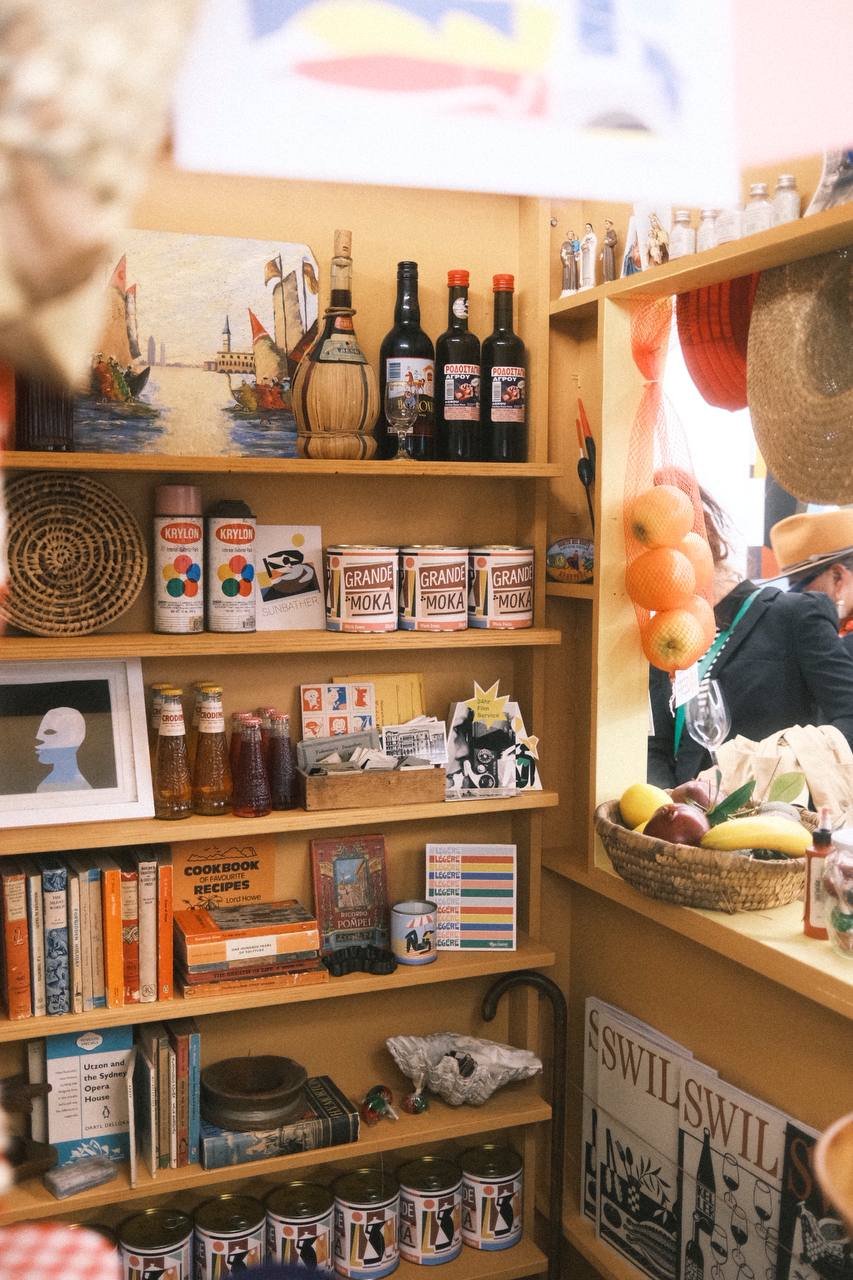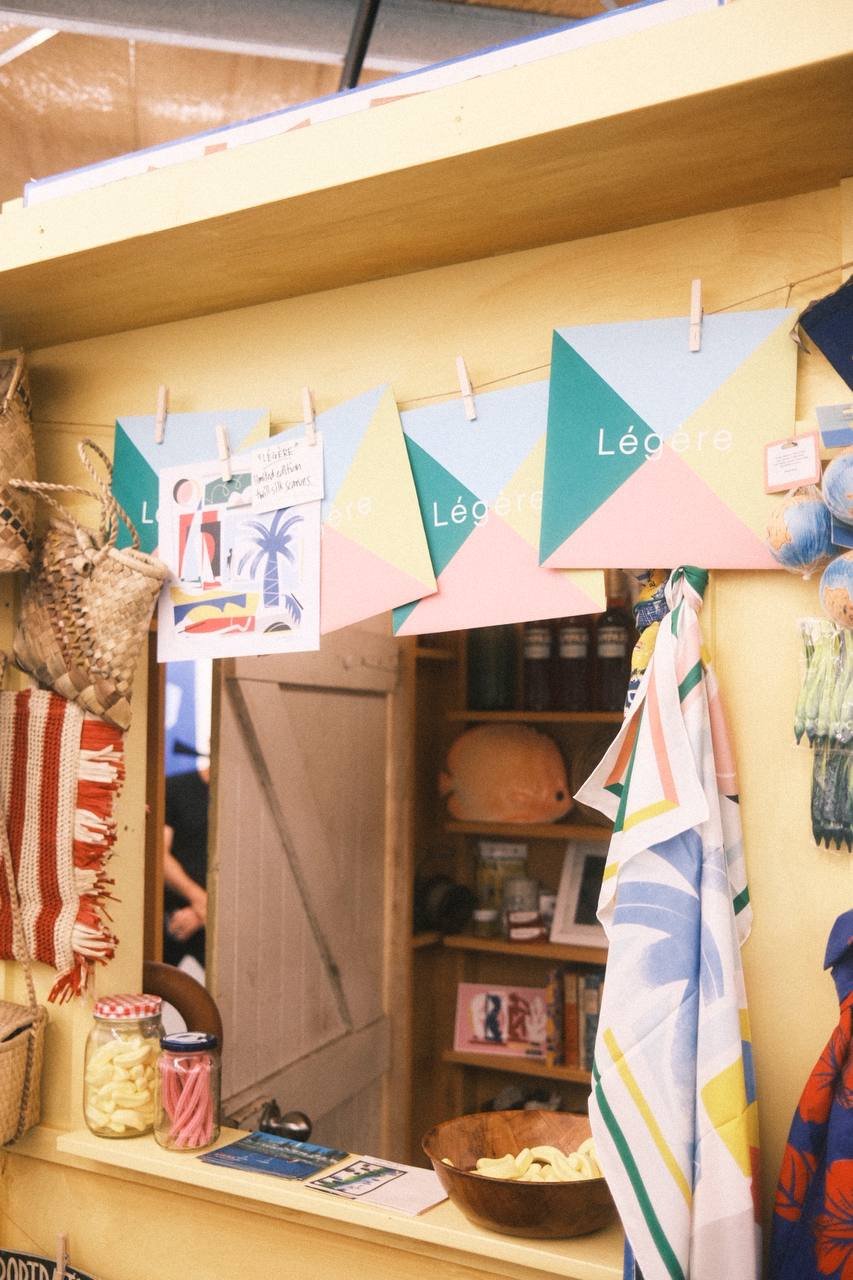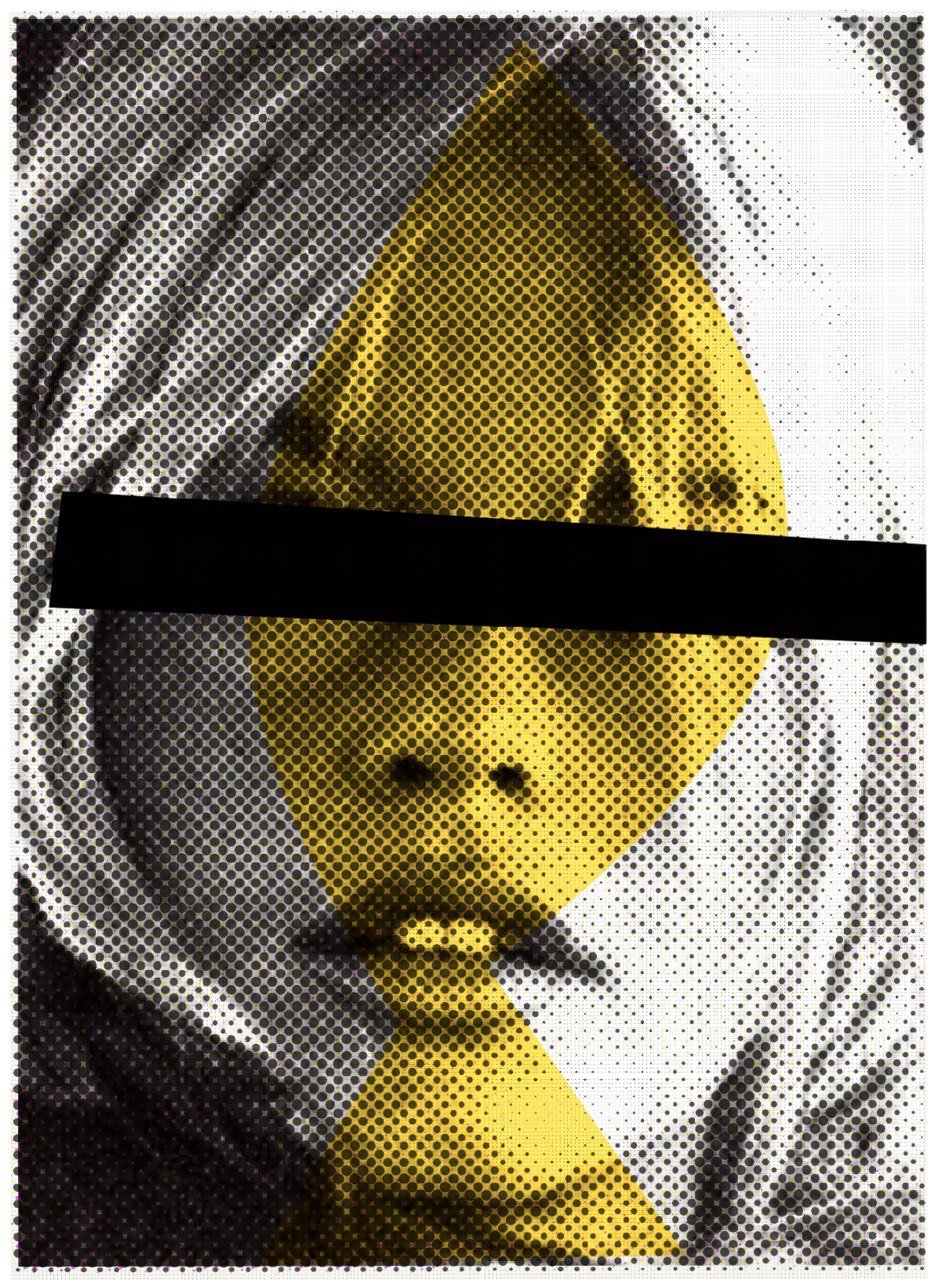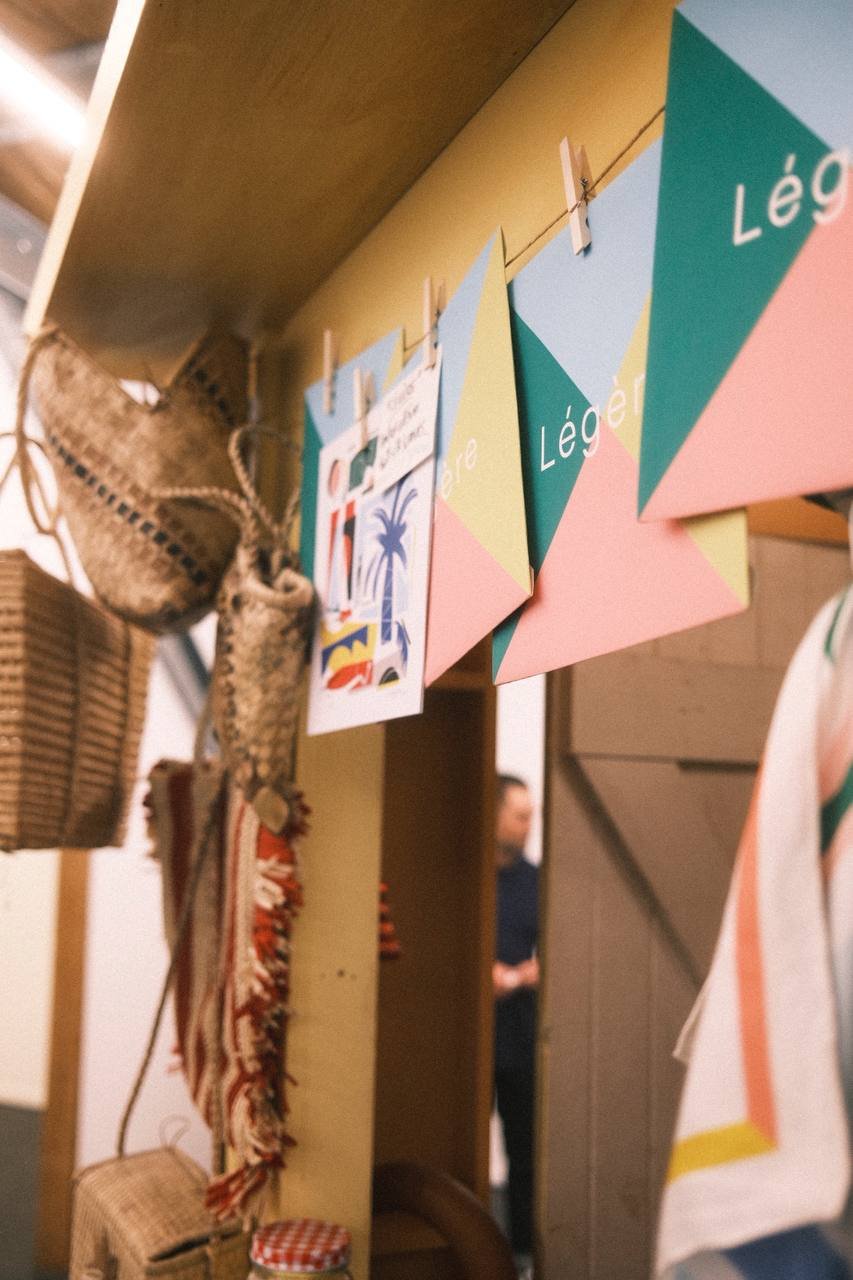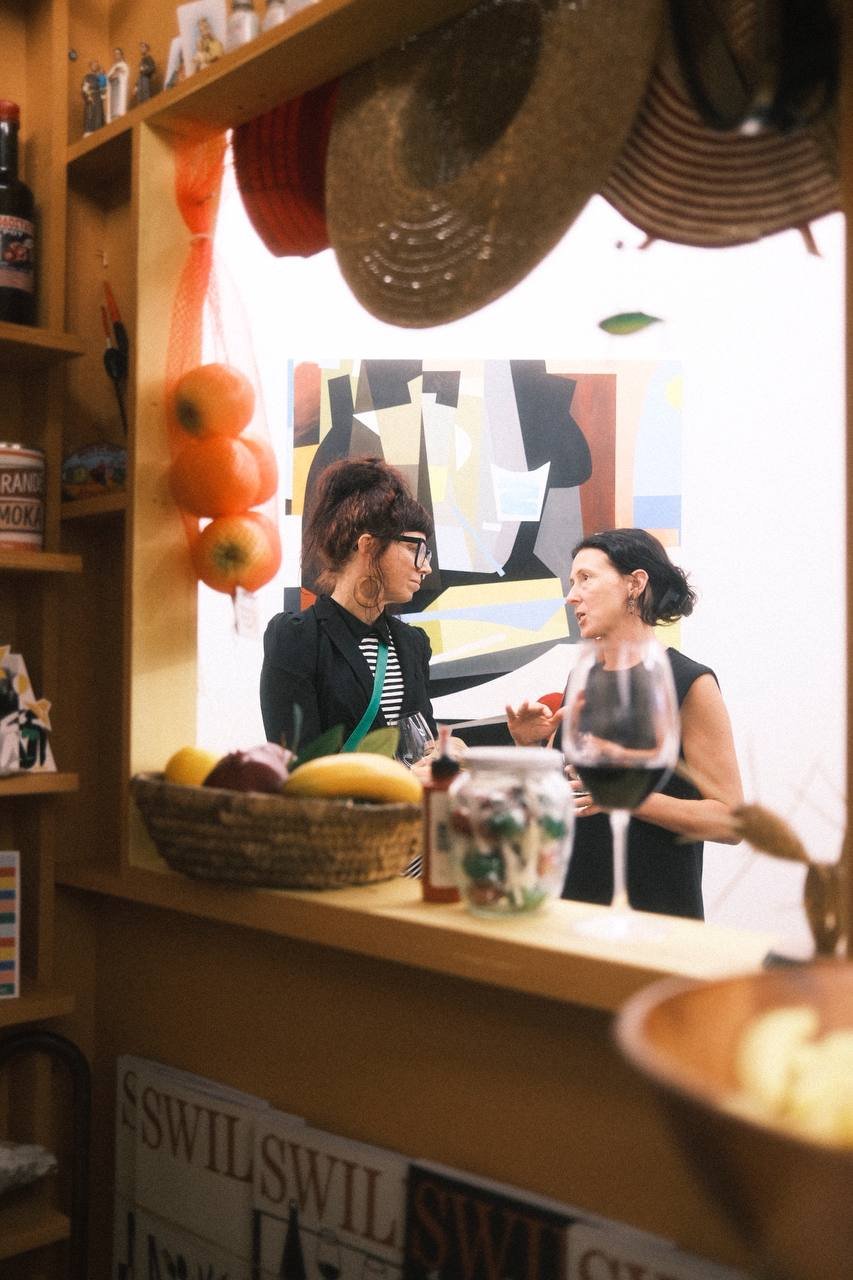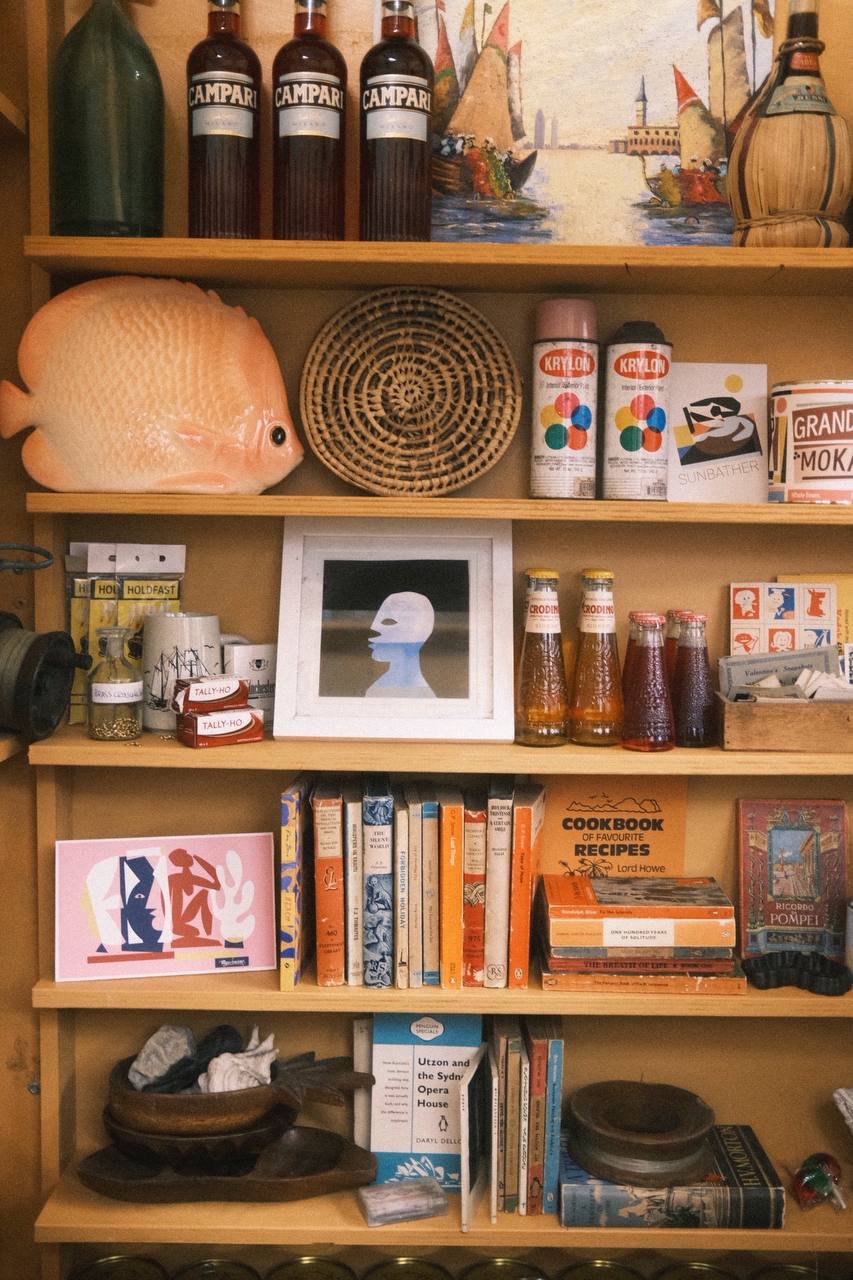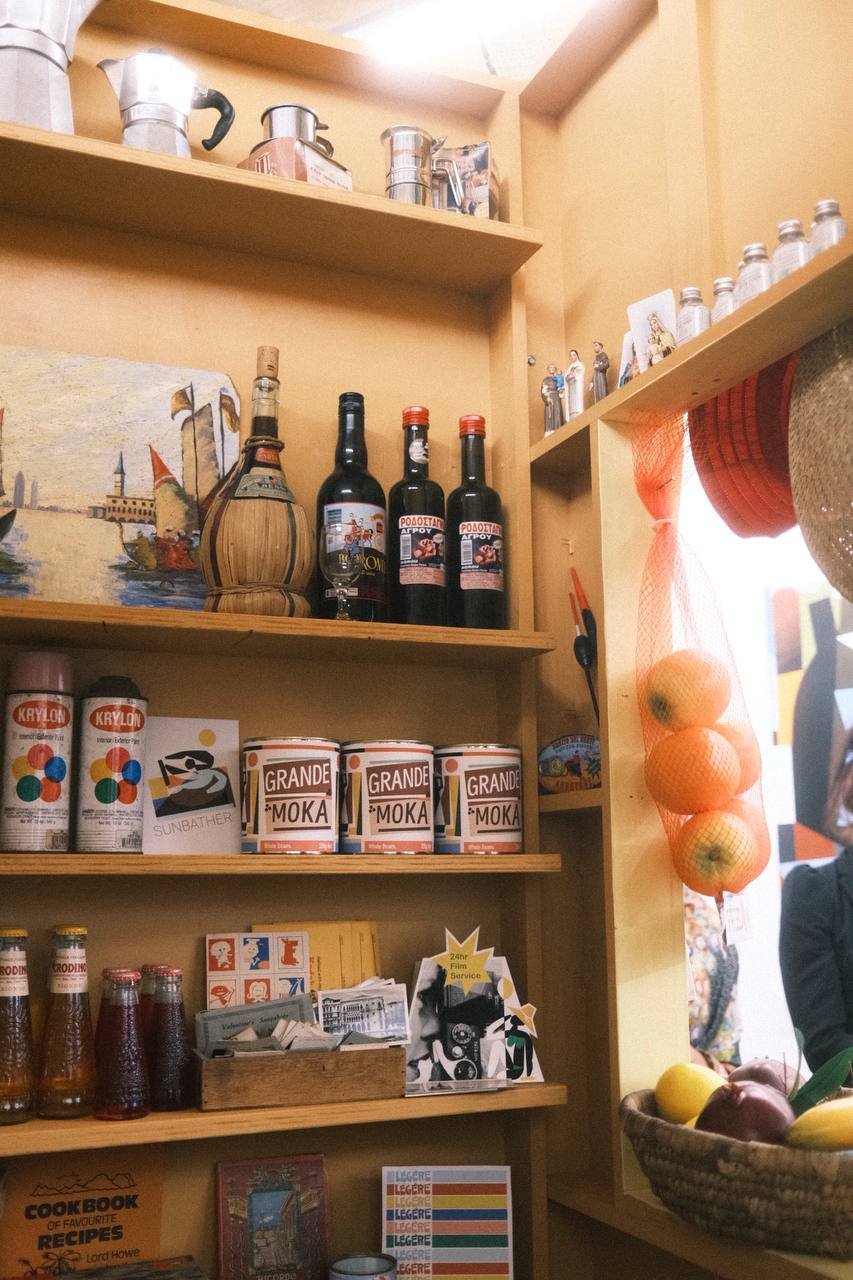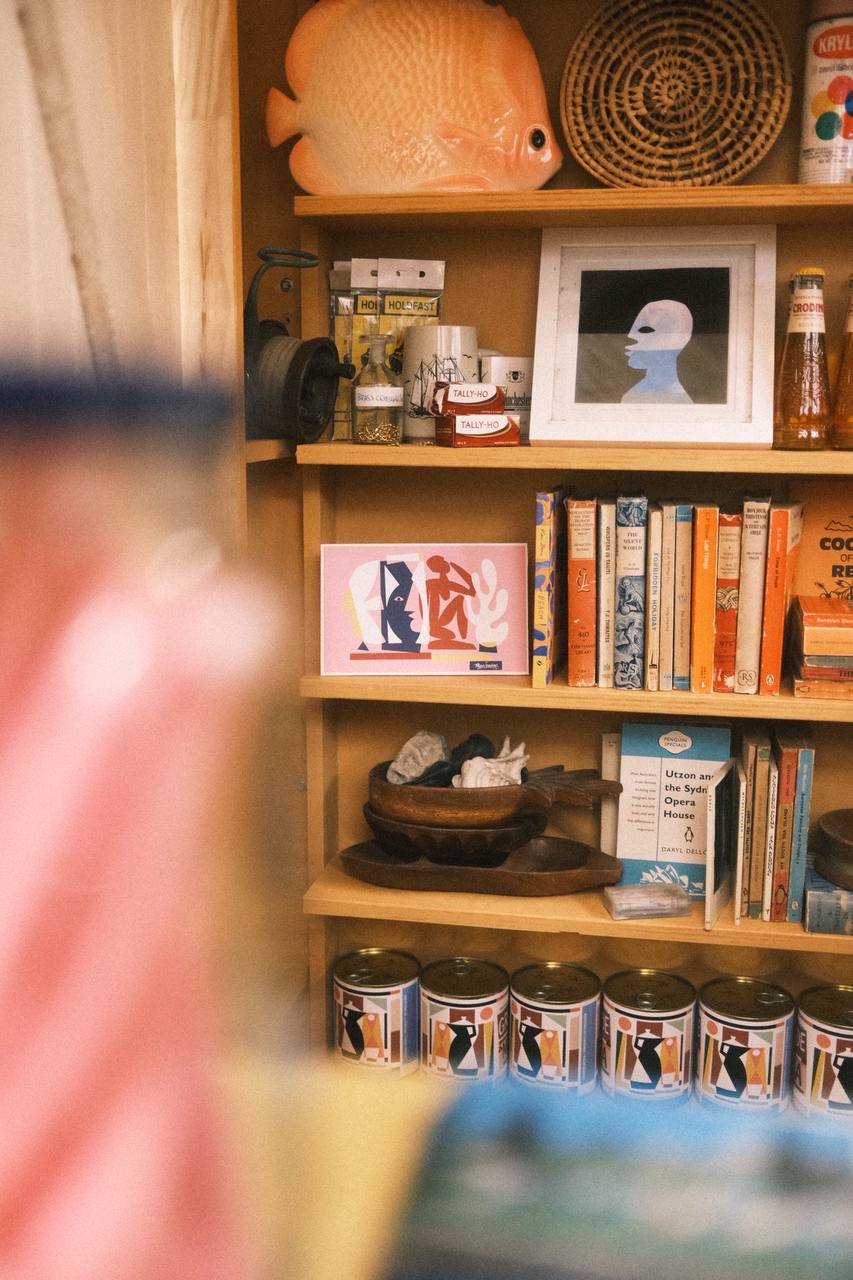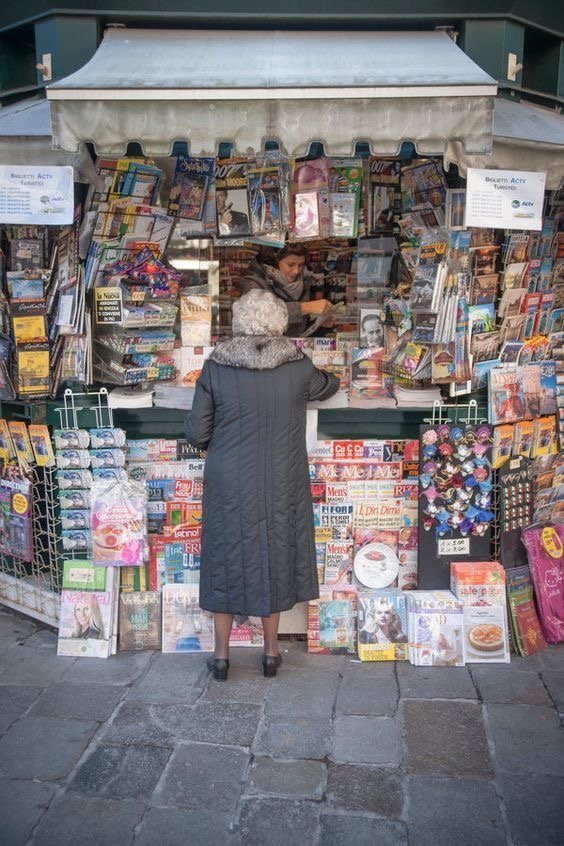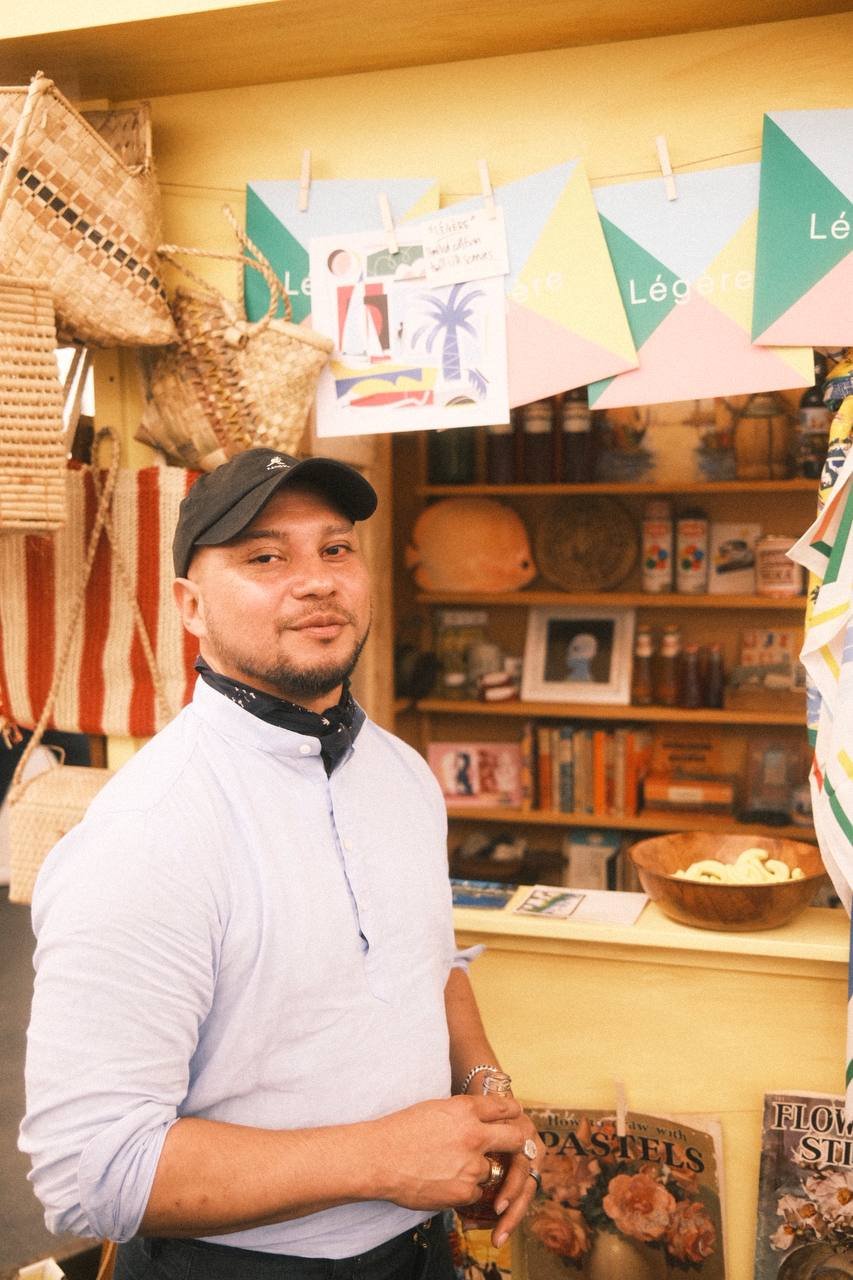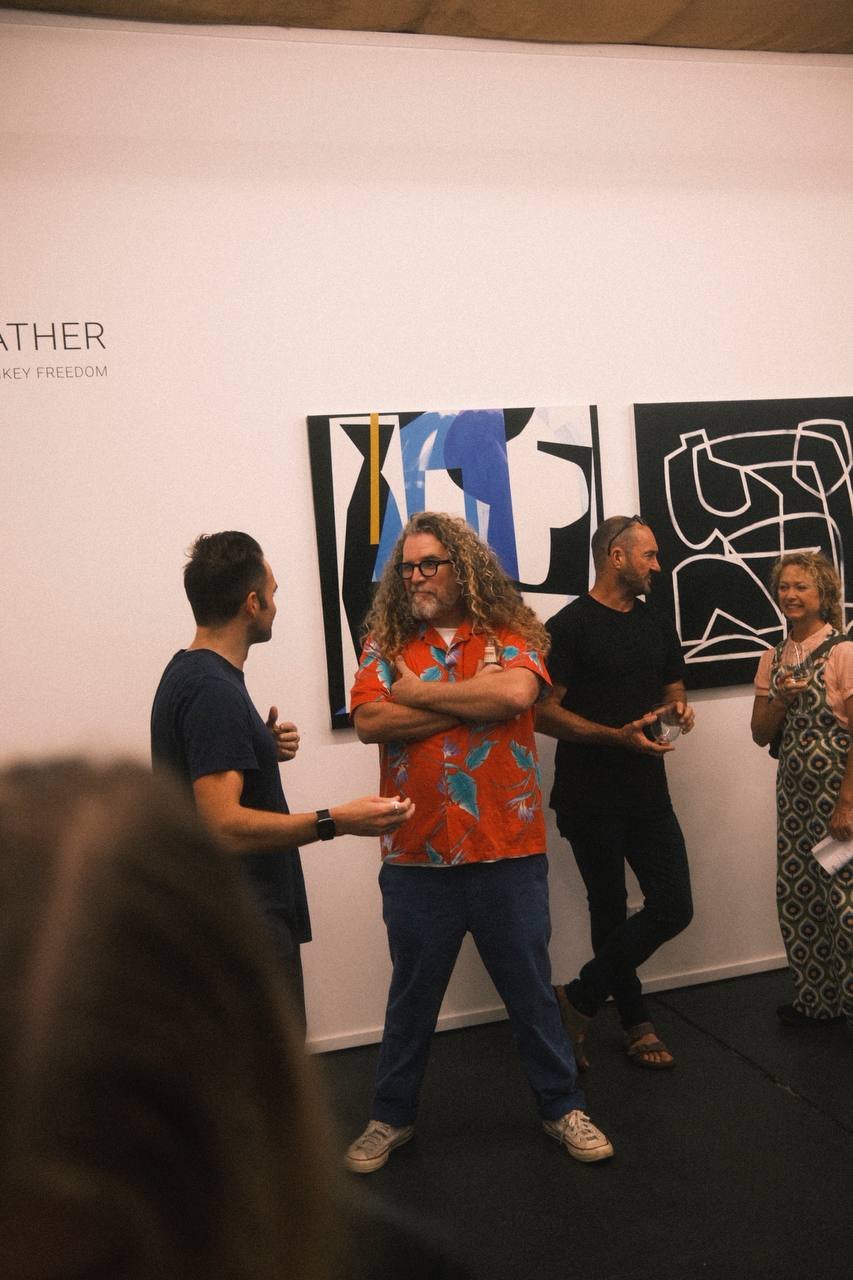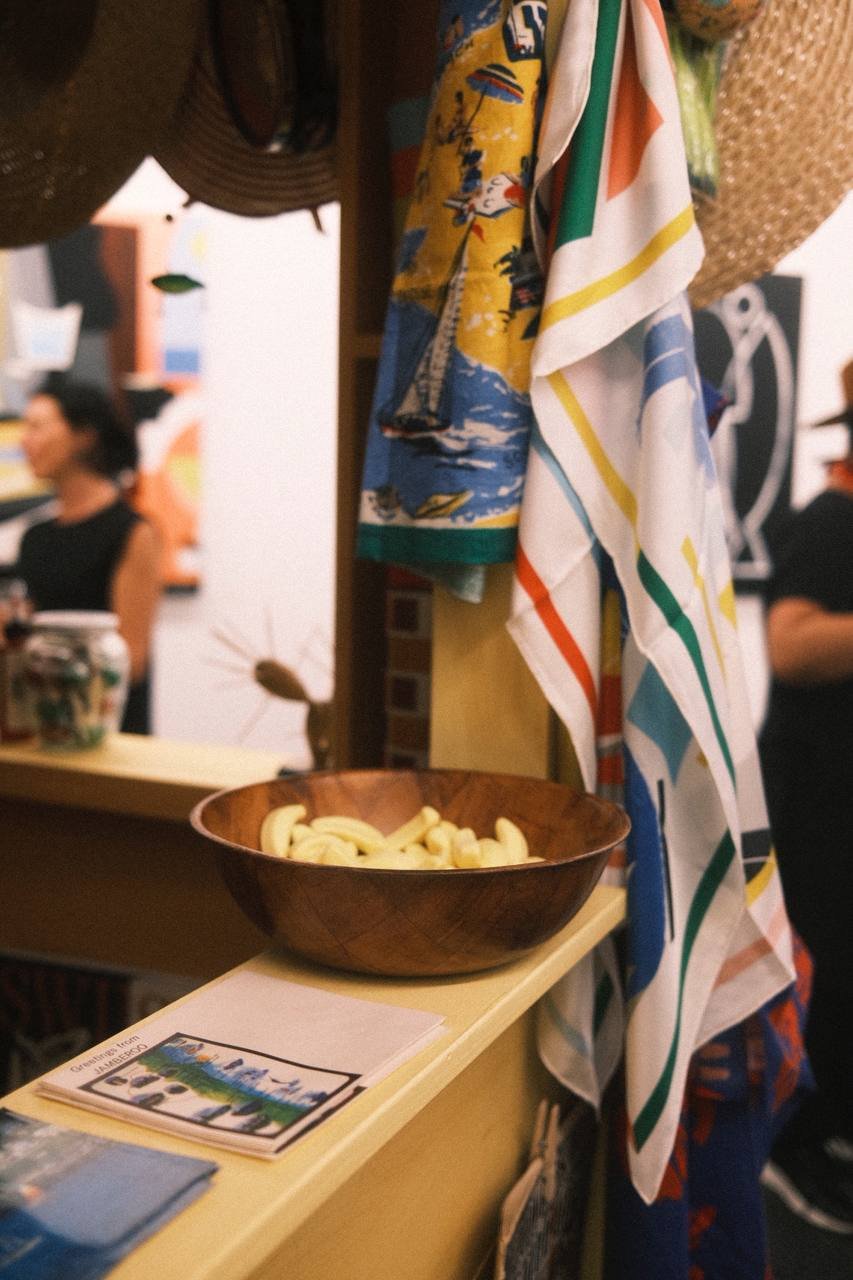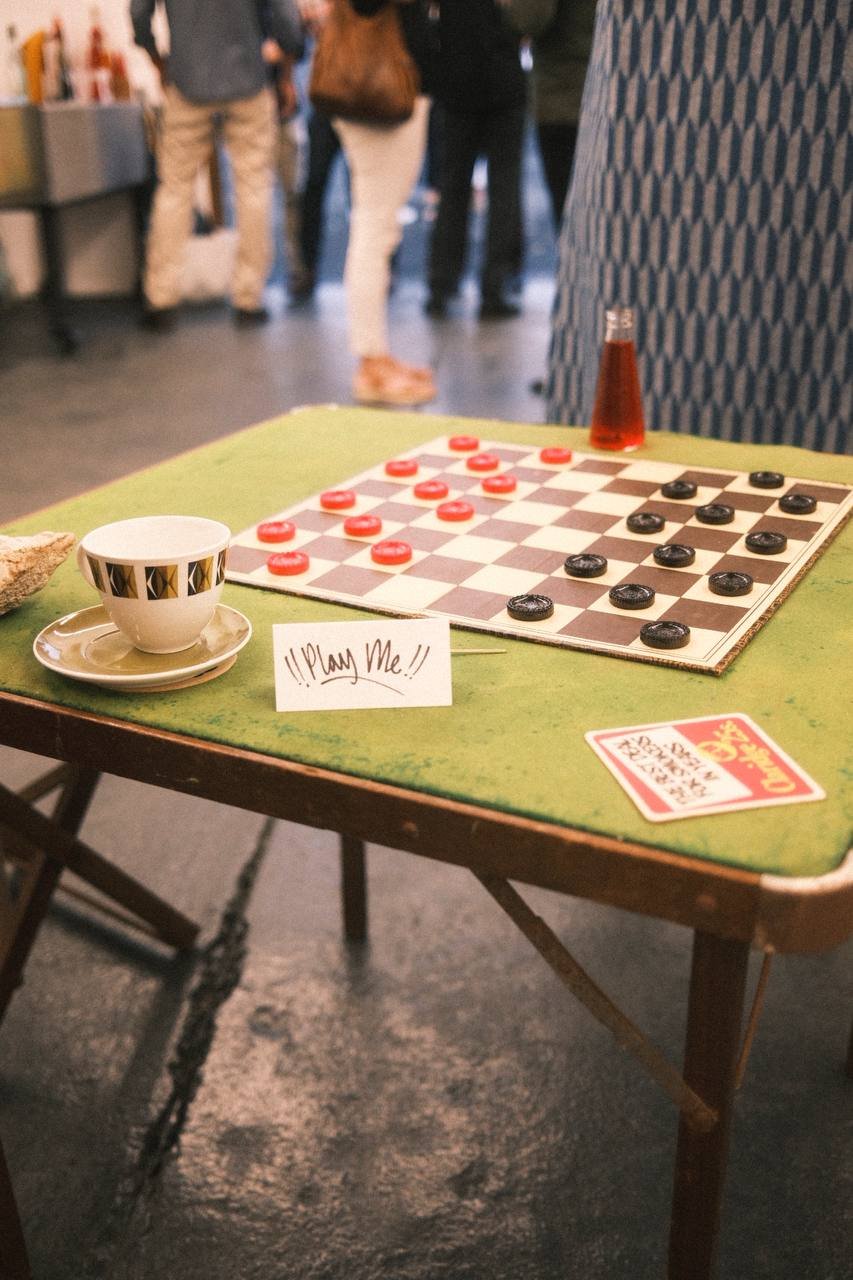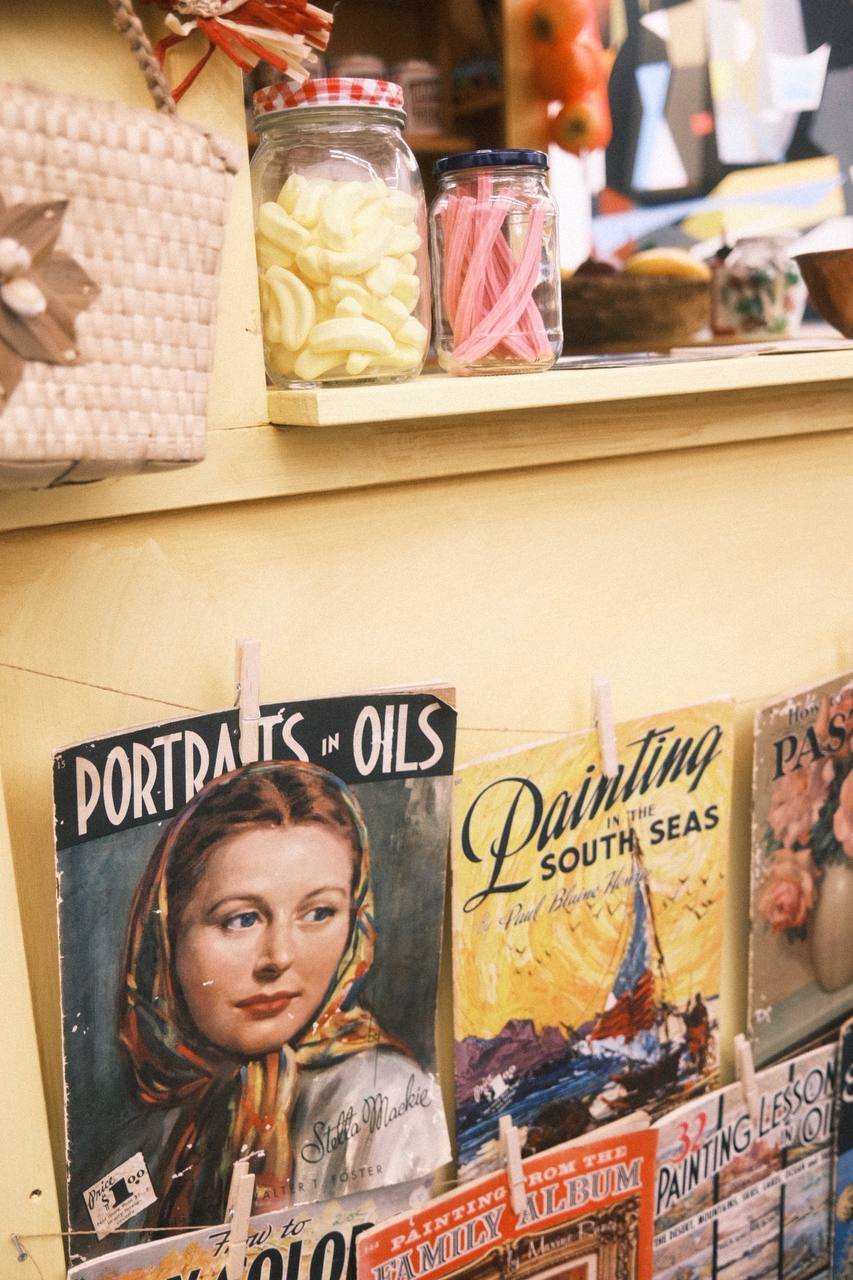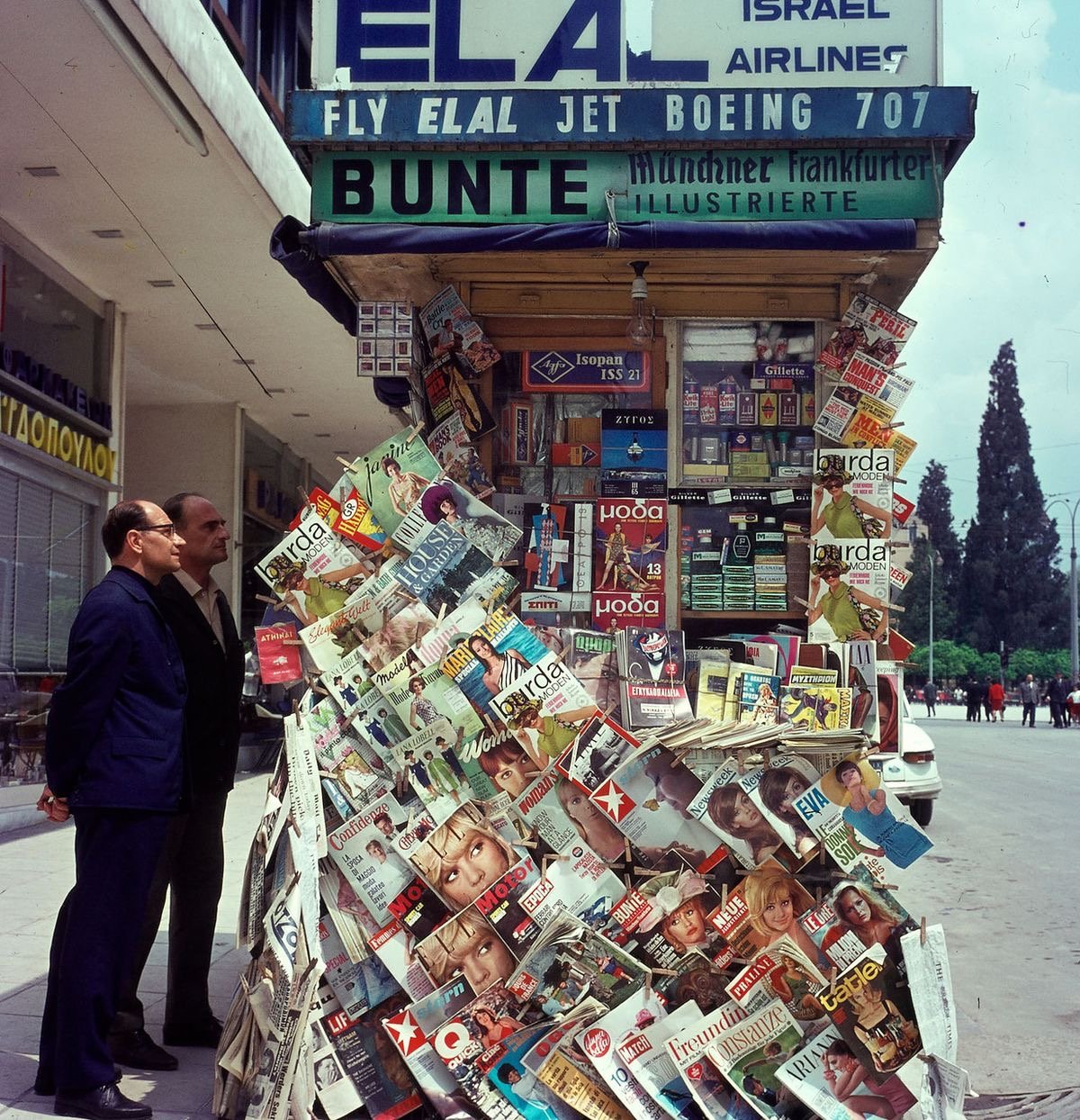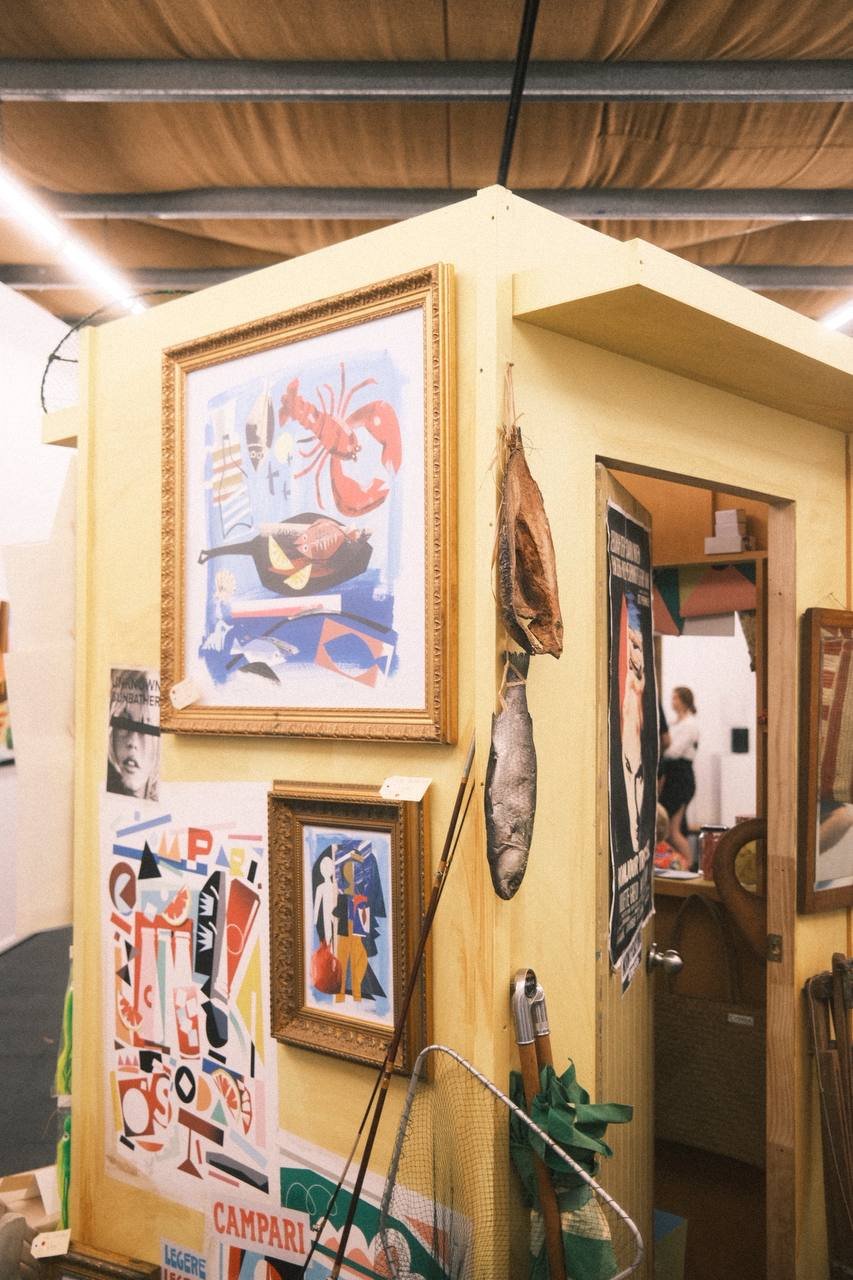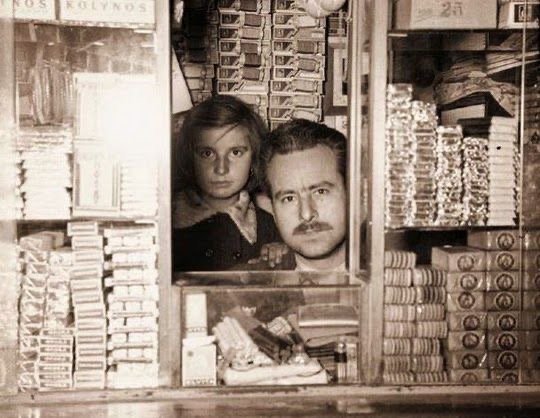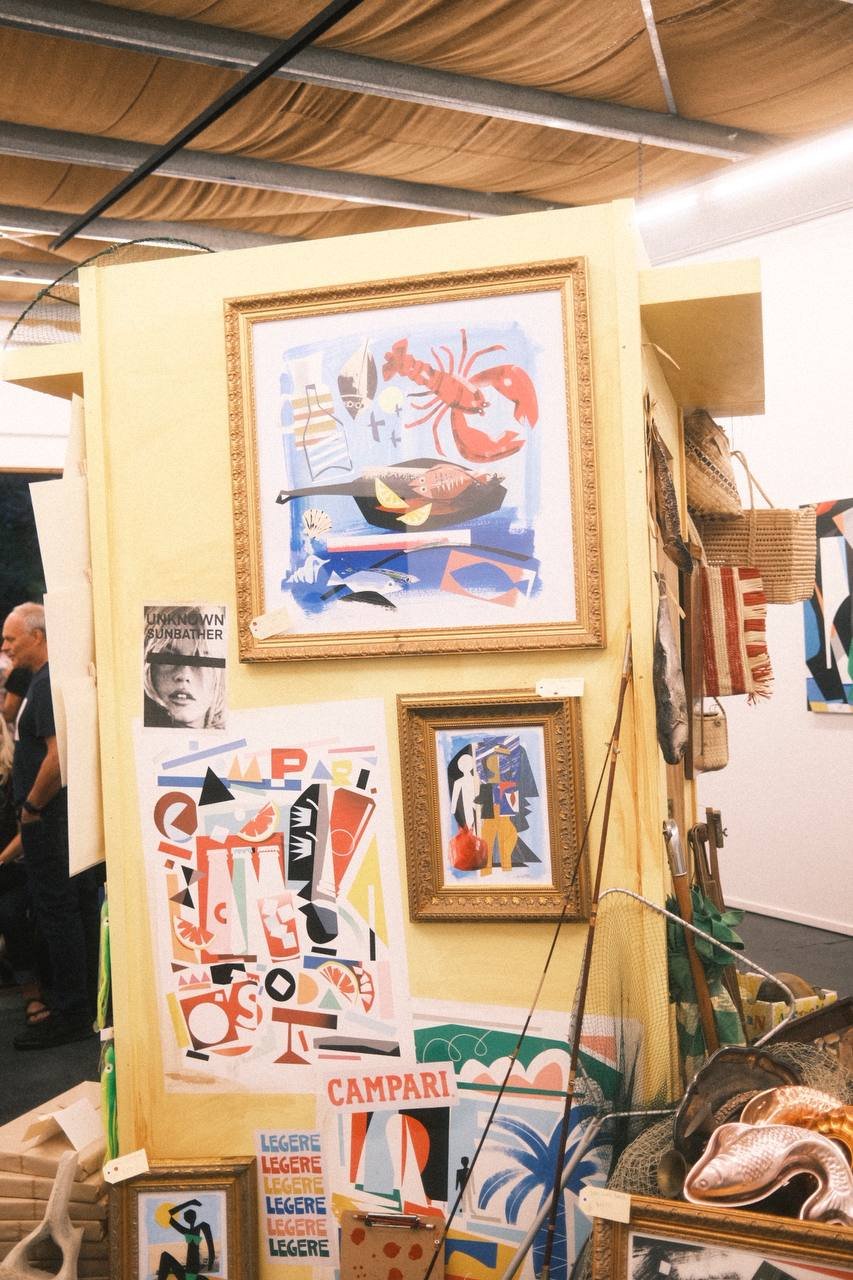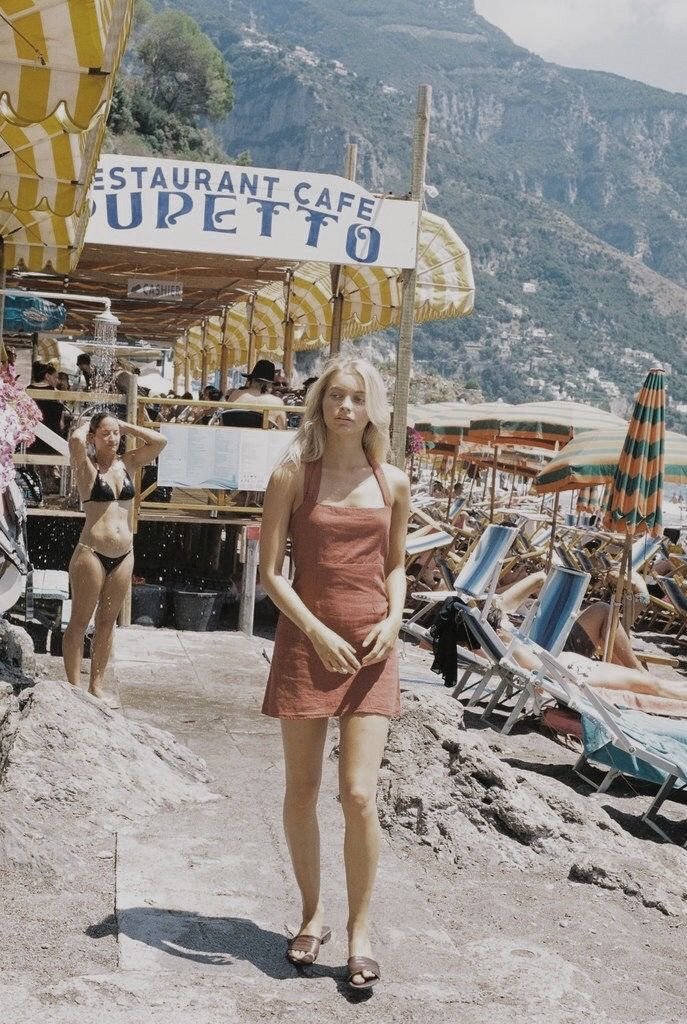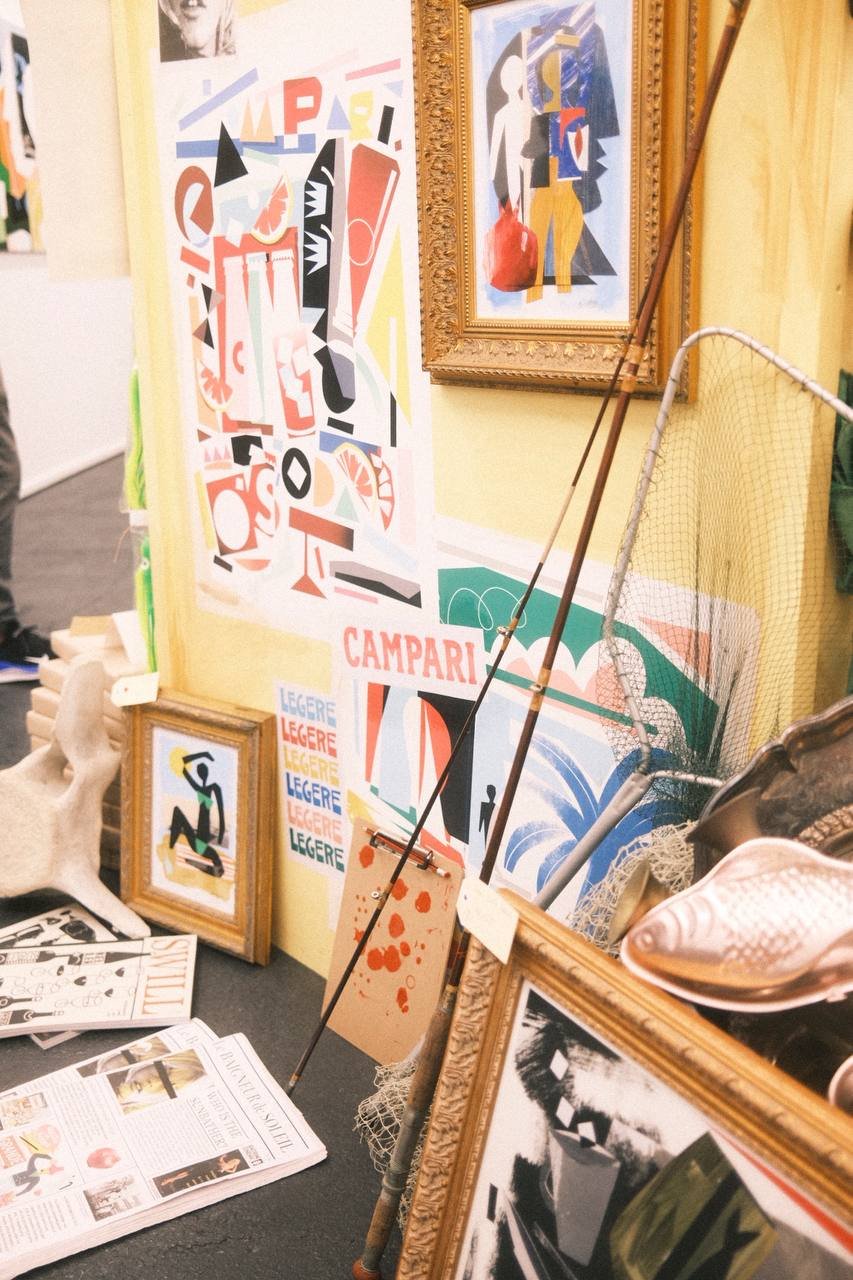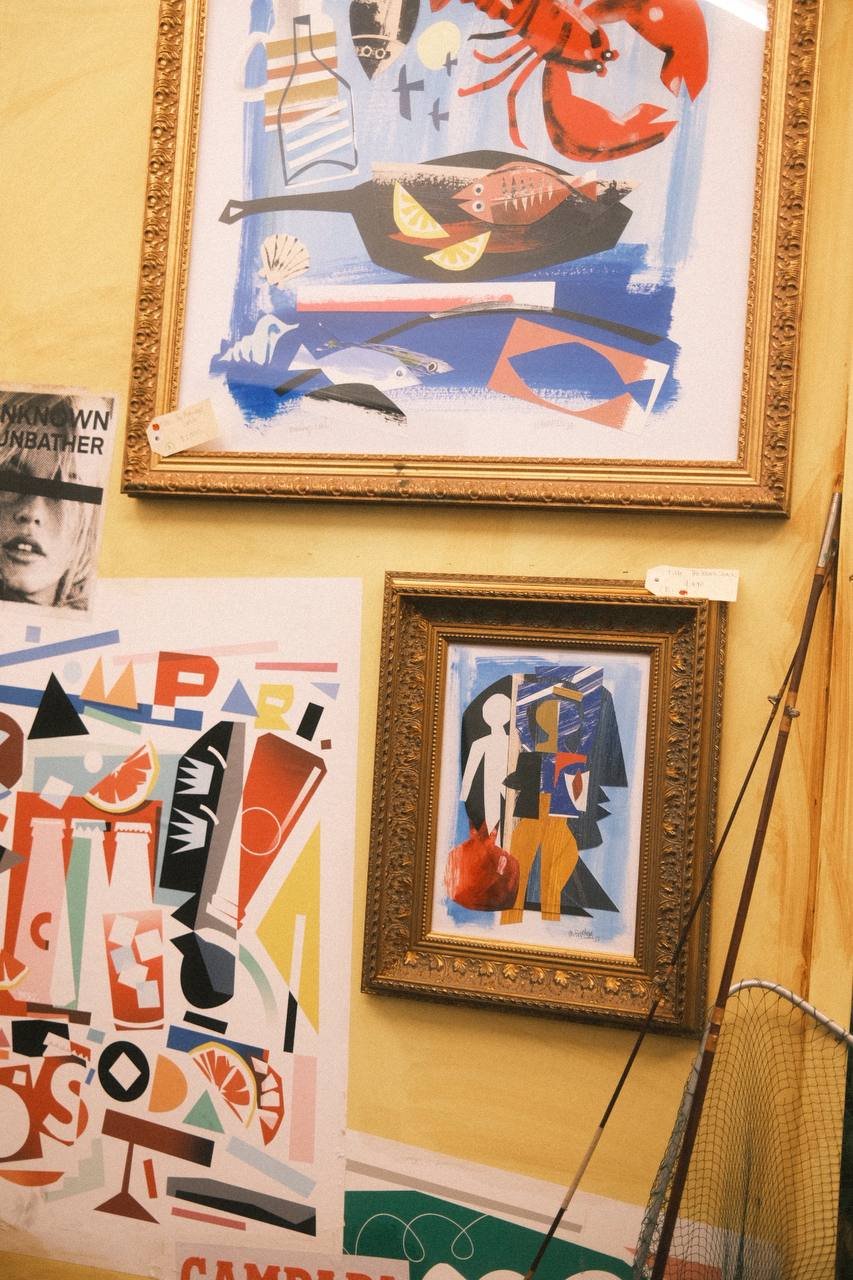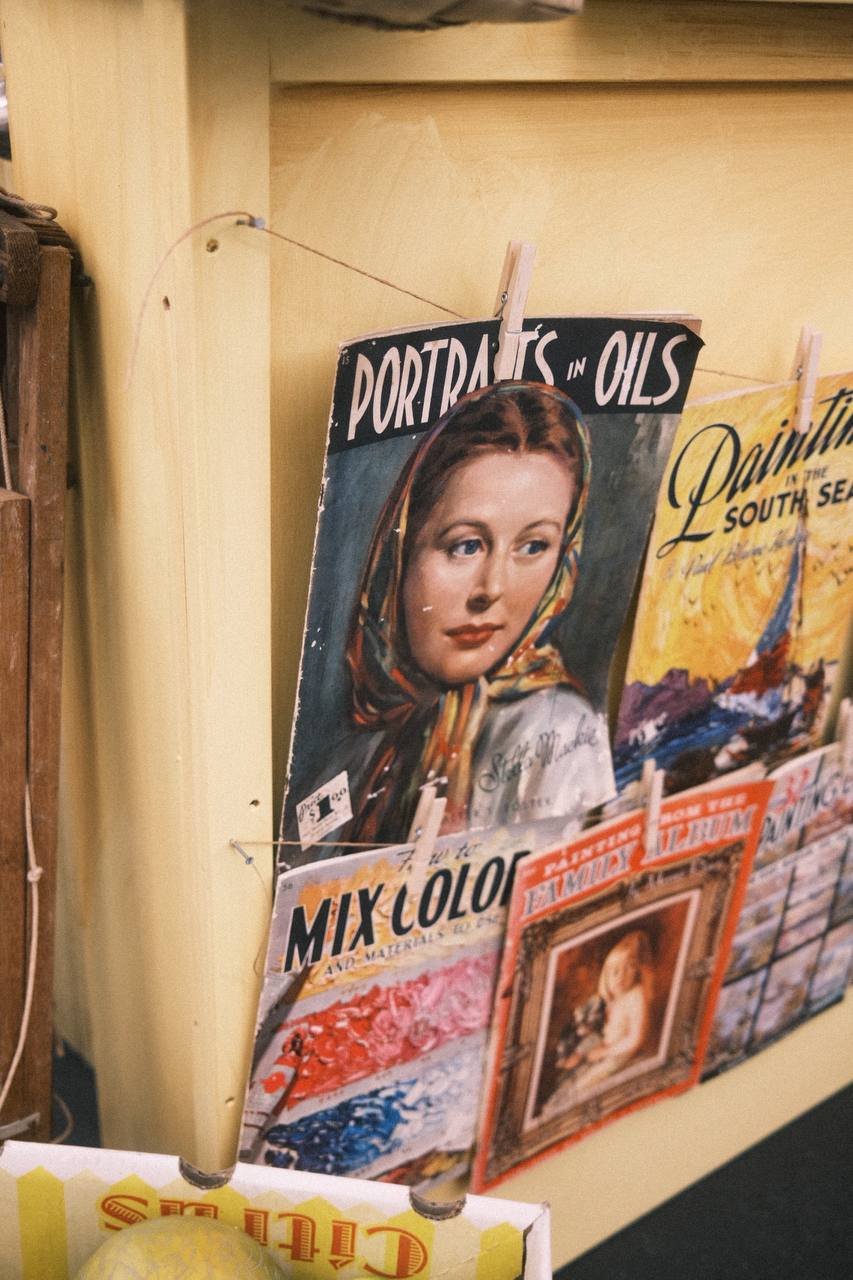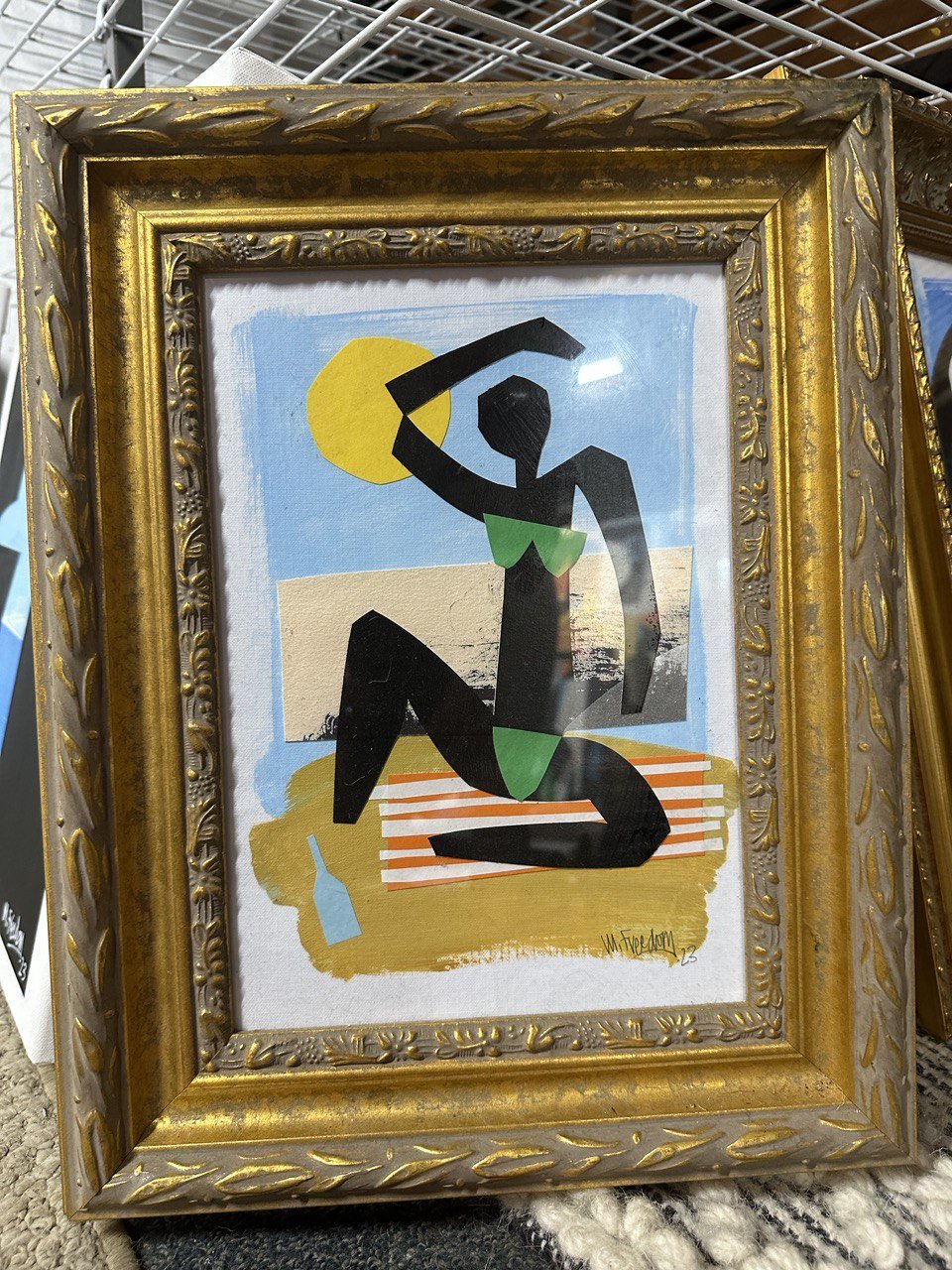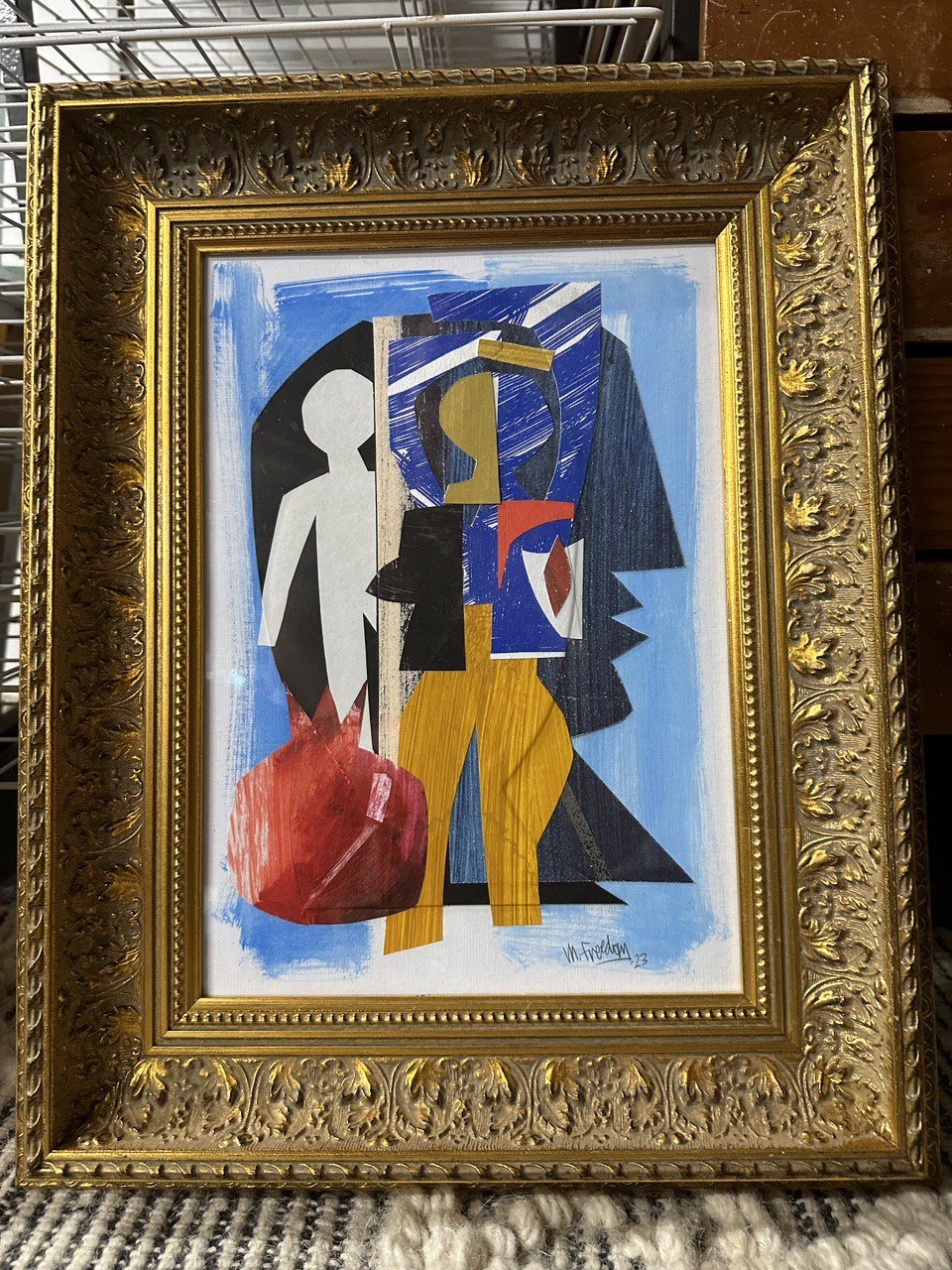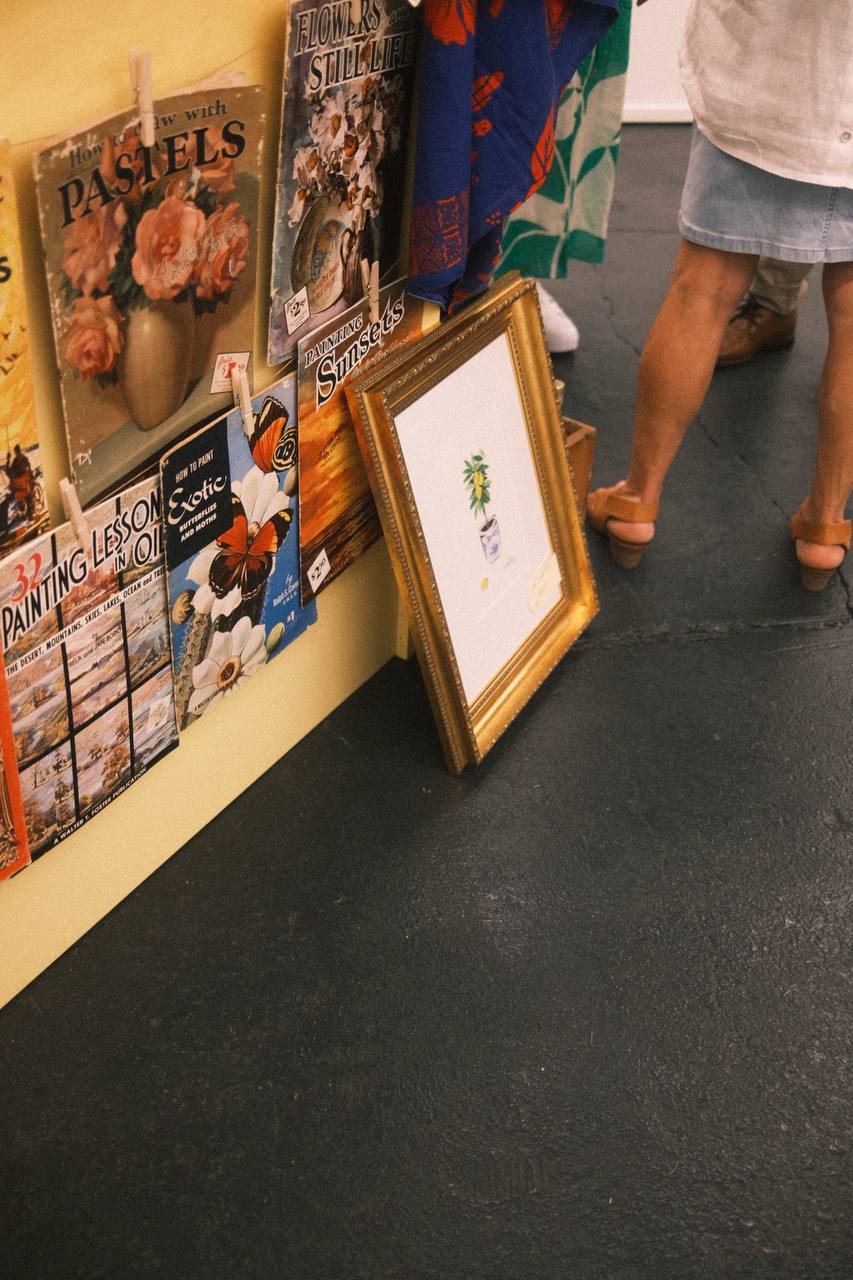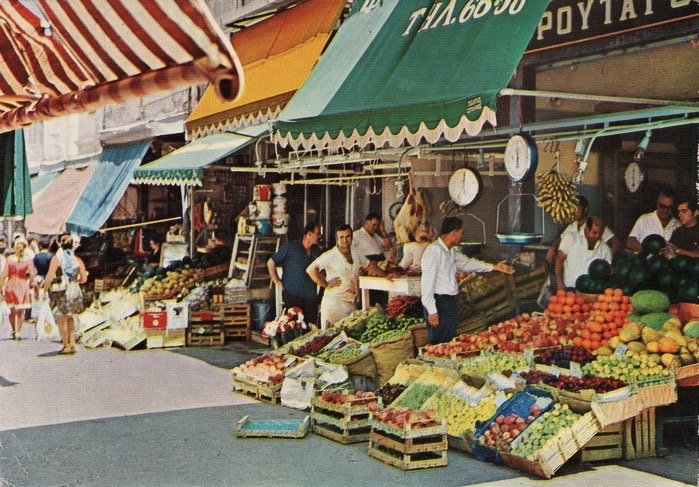
"Sunbather," as the title suggests, was an exhibition about summer, but not in the way we experience it now. It was a nostalgia for the summers of childhood, when the sun felt warmer, the sky more vivid, and days stretched endlessly in some small coastal town. There, in the modest caravan parks and beach huts, life was simple, rich with small treasures—magazines, chewing gum, battery operated handheld fans, small transistor radios, fishing spools, Chuppa Chups—goods sold by weathered men with brow-wiped faces, whose kiosks were once as much a part of the fabric of the town as the salt in the air. These humble corners of the world, once bustling with life and character, have now disappeared, replaced by sterile franchises that offer little of the warmth or whimsy those old stalls held. The men, the huts, the way life was—are all fading.
In building a replica of that world, Mikey wanted this installation, the Sunbather Kiosk, to offer a window into the past—an invitation to reflect on what we are losing, and what we stand to forget. It’s a meditation on time and change, on the local landmarks and the sense of belonging they once gave us. There was something quietly miraculous in how those small, weathered places worked—despite the rust, the dust, the leaky roofs—how they held together, a testament to a simpler way of life. In recreating it, Freedom hoped to rekindle those memories, the ones we risk losing in our rush to modernise, and remind us of the power of small, imperfect things that make us feel at home.
Photos: Caleb Adonis. 2024. The Anomaly Proect.
Sponsored By
